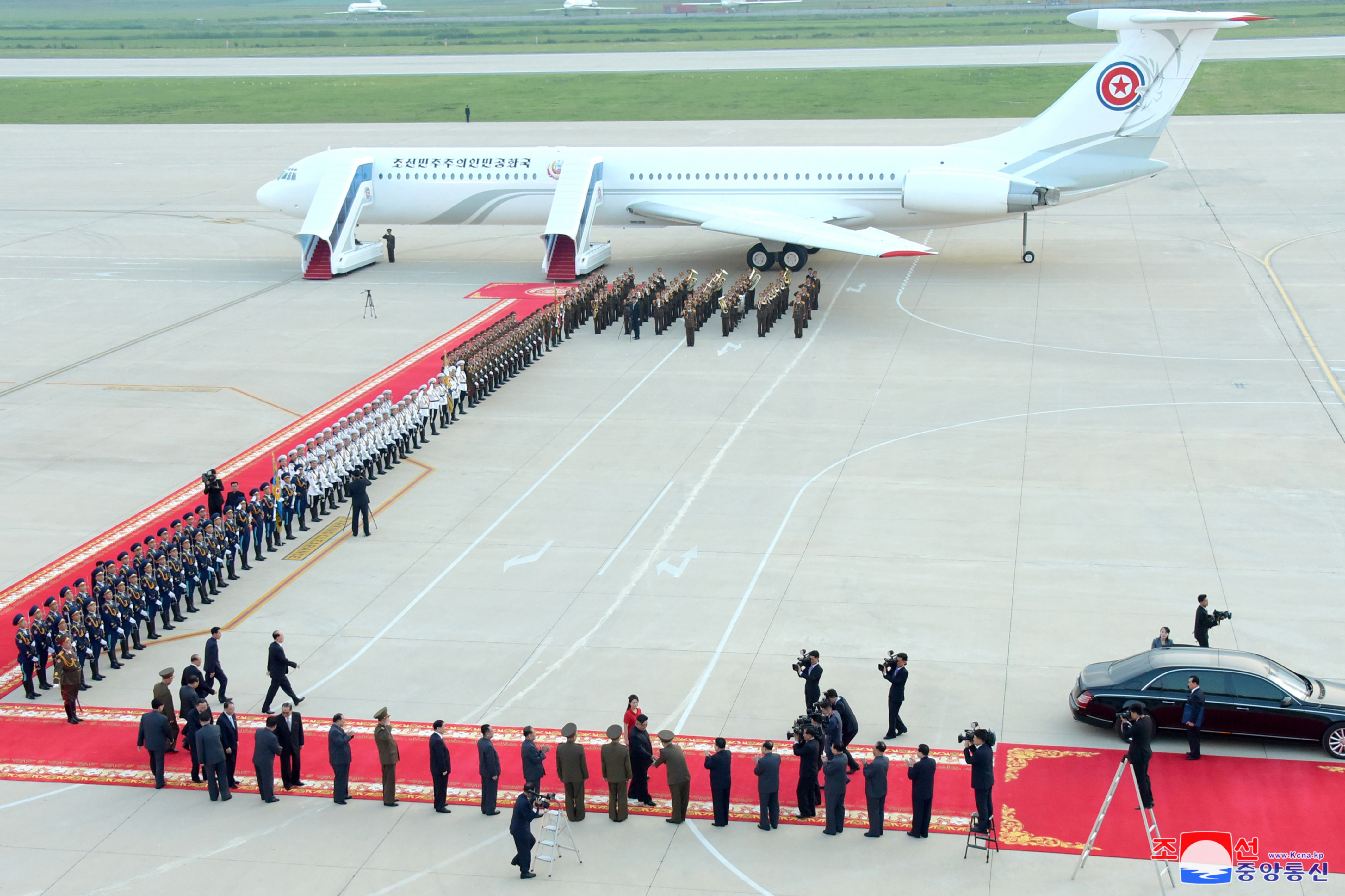KJU Does Beijing (A Good Year for the Roses)
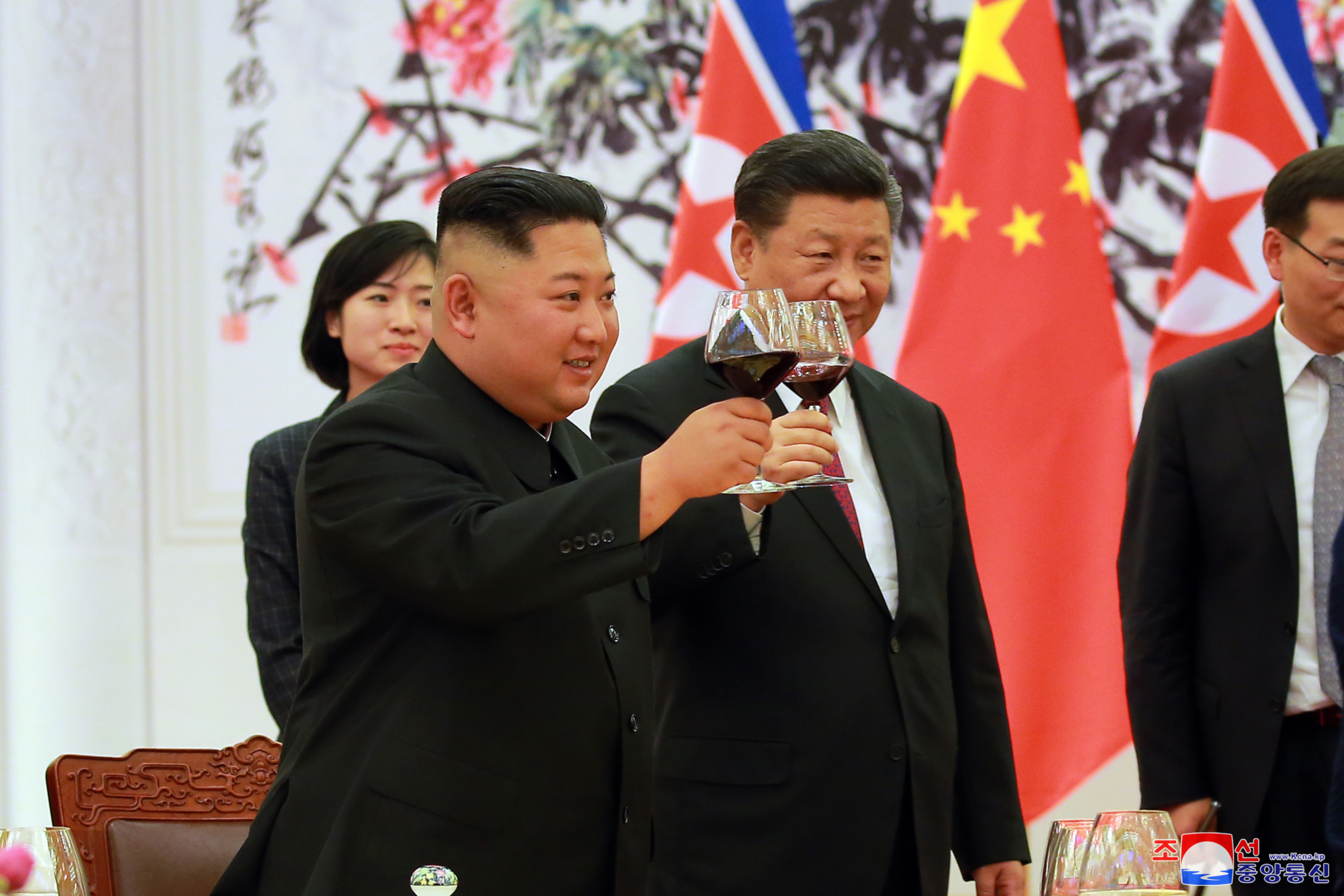
KJU’s last observed appearance was his return from Singapore on June 13
Kim Jong Un (Kim Cho’ng-u’n) and his wife Ri Sol Ju (Ri So’l-chu) visited China during June 19 (Tuesday) and June 20 (Wednesday). A send-off ceremony featuring Yang Hyong Sop (Yang Hyo’ng-sop), VMar Ri Myong Su (Ri Myo’ng-su) and other members and alternate members of the Workers’ Party of Korea (WPK) Political Bureaus was held at 900 KST. He “shook hands and exchanged greetings with senior officials who came out to see him off one-by-one” before boarding his personal plane. The assembled members of the DPRK central leadership “heartily wished for good successes in his visit to China and safe return.”

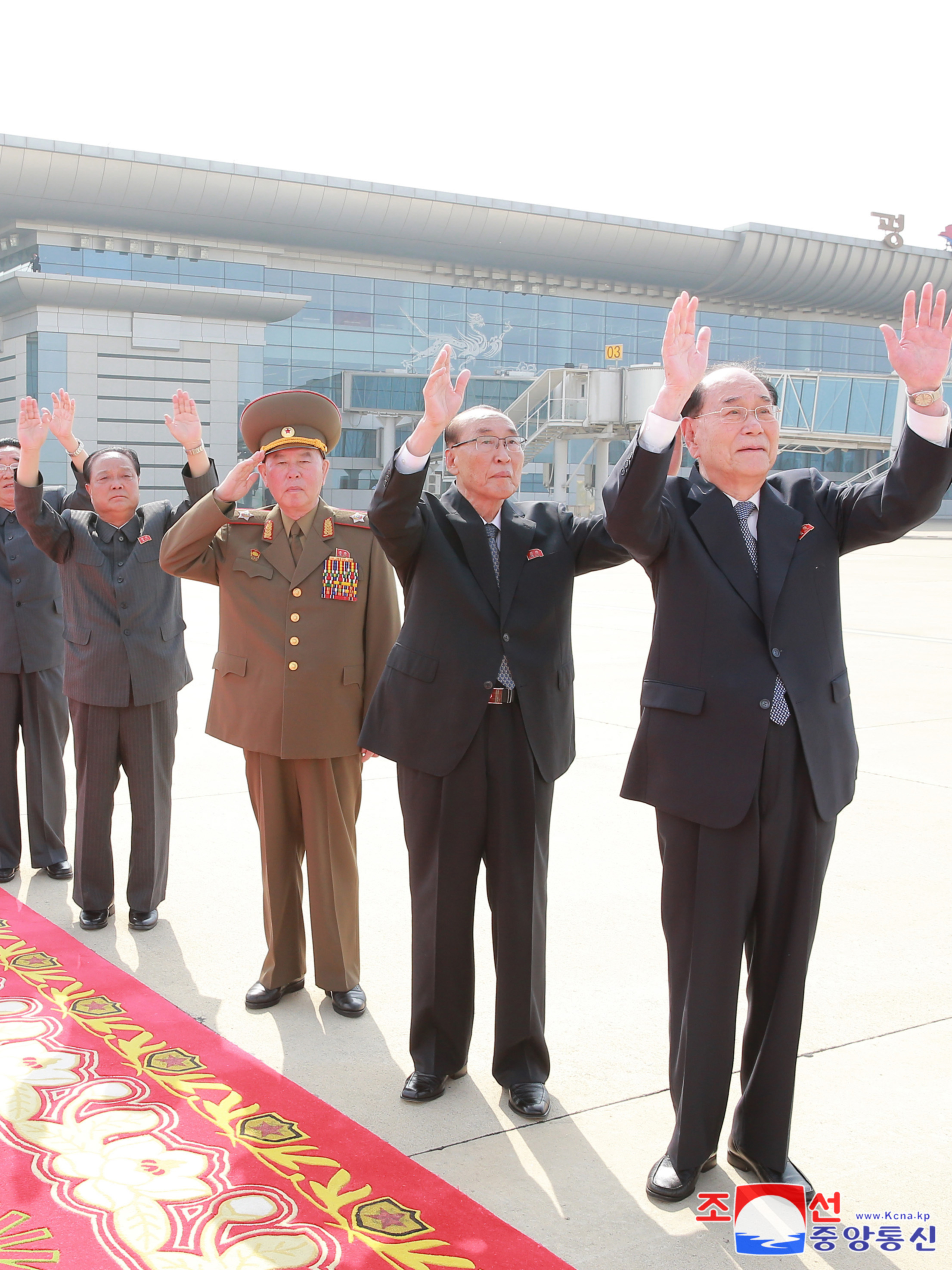
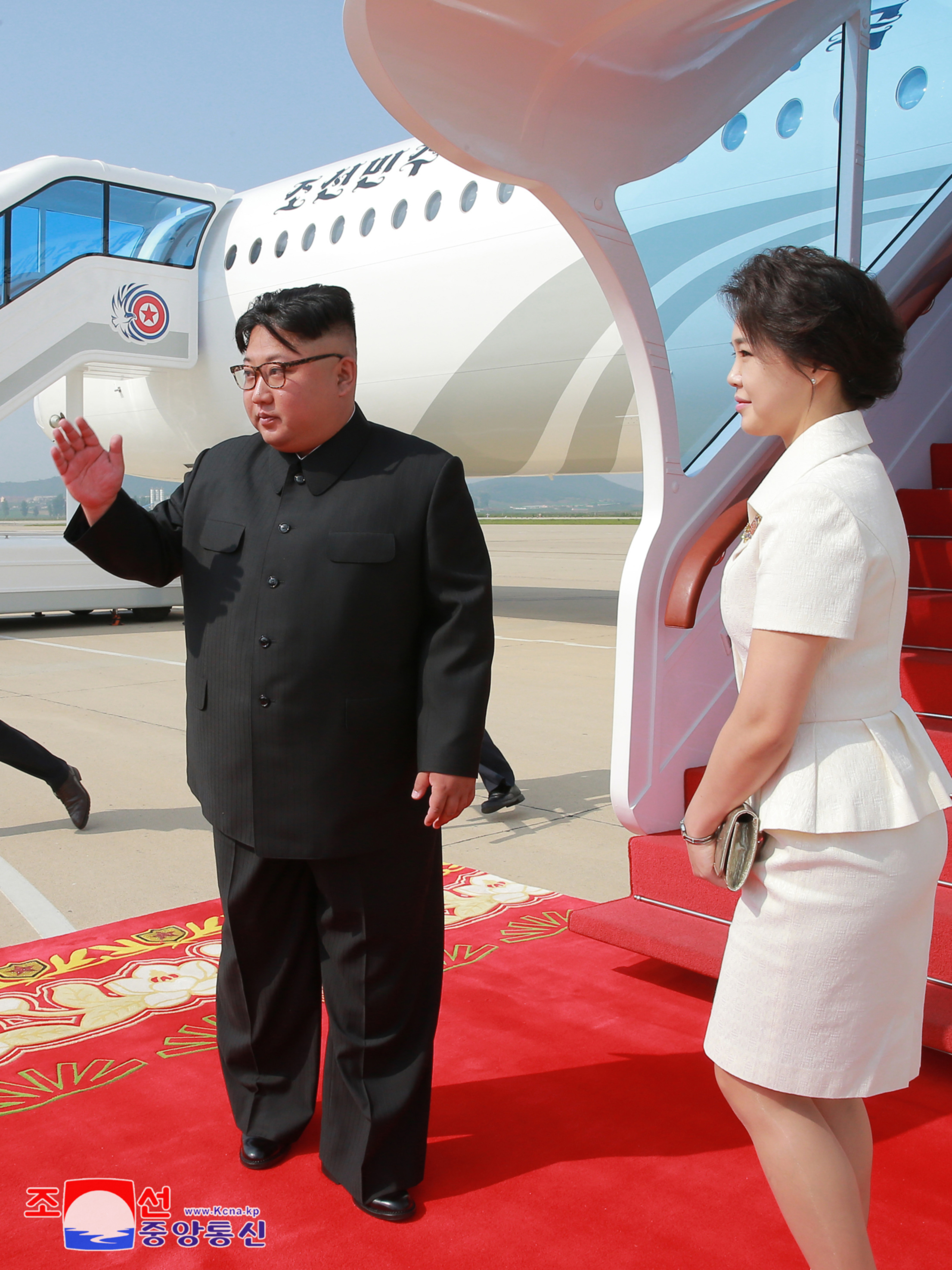
Jong Un’s travel party to the PRC included Personal Secretariat Director Kim Chang Son (Kim Ch’ang-son), WPK Vice Chairman and WPK Organization Guidance Department Director Choe Ryong Hae (Ch’oe Ryong-hae), DPRK Premier and State Affairs Commission Vice Chairman Pak Pong Ju (Pak Pong-chu), WPK Vice Chairman and WPK International Affairs Department (IAD) Director Ri Su Yong (Ri Su-yo’ng), WPK Vice Chairman and WPK United Front Department Director Kim Yong Chol (Kim Yo’ng-ch’o’l), WPK Vice Chairman for Education and Science Pak Thae Song (Pak T’ae-so’ng), DPRK Foreign Minister Ri Yong Ho (Ri Yo’ng-ho), Minister of the People’s Armed Forces Gen. No Kwang Chol (No Kwang-ch’o’l), Personal Secretary deputy chief and WPK Organization Guidance Director Jo Yong Won (Cho Yo’ng-wo’n), senior WPK officials Han Kwang Sang (Han Kwang-sang) Kim Song Nam, Kwon Hyok Bong, Jong Un’s lead bodyguard and the Director of the Main Office of Adjutants and a small staff of heroic Chinese interpreters.
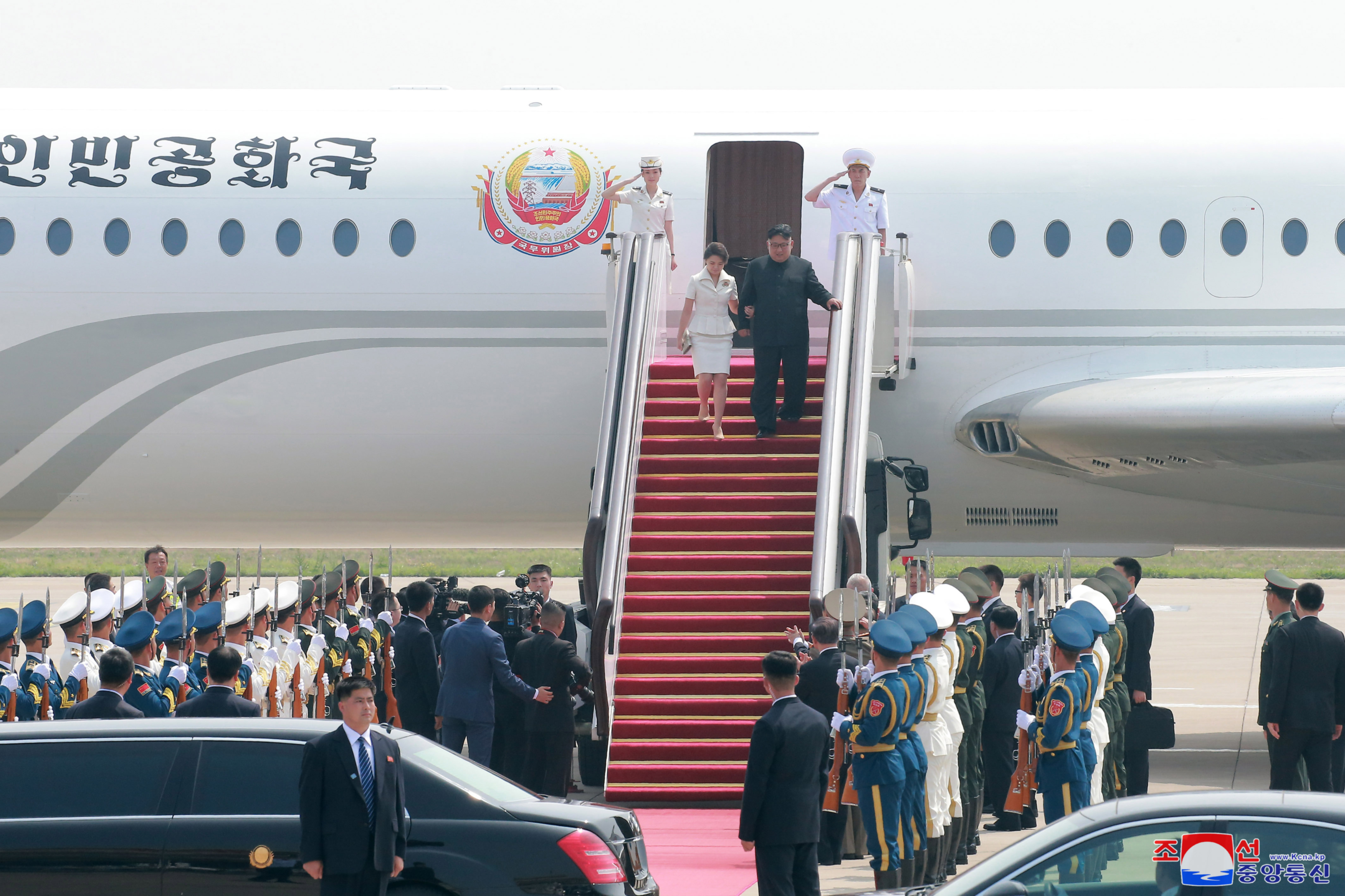
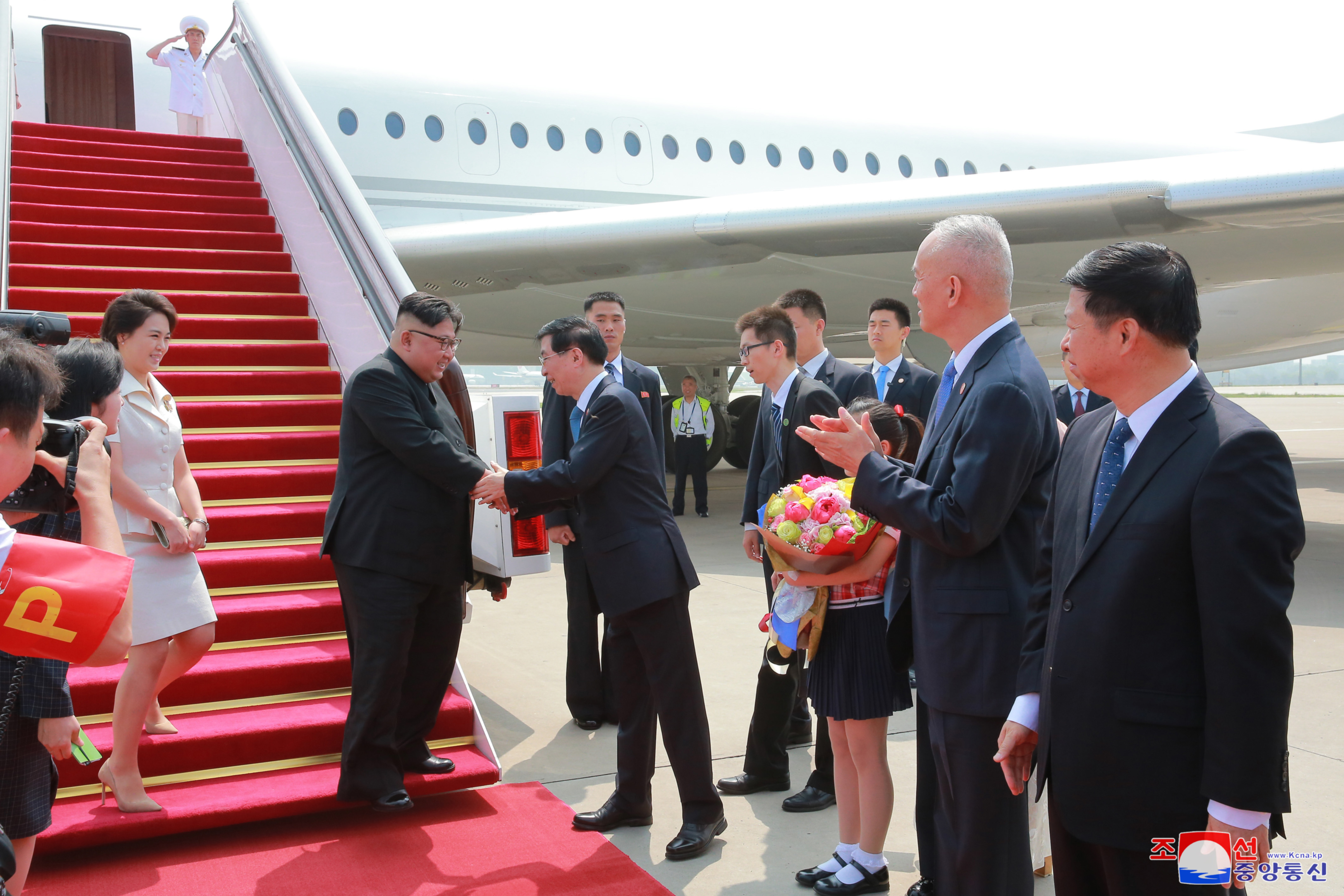
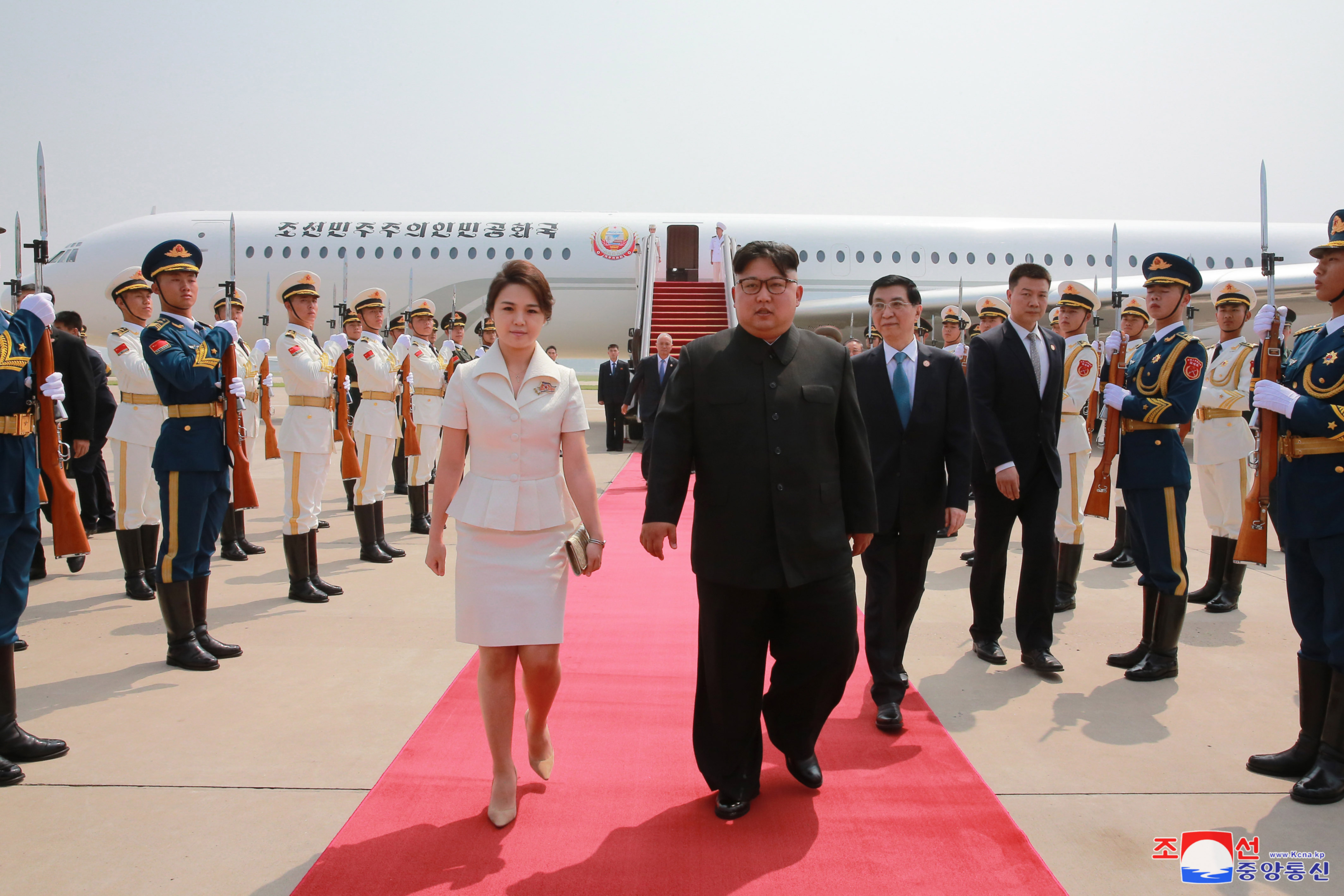
Kim Jong Un, Ri Sol Ju and the travel party arrived at Beijing Airport at 1000 local time, greeted by DPRK Ambassador to the PRC Ji Jae Ryong (Chi Ch’ae-ryong) and from the Chinese Government and the Communist Party of China: Wang Huning, Secretary of the Beijing Municipal CPC Committee Cai Qi, CPC International Liaison Department boss Song Tao and PRC Ambassador to the DPRK Li Jinjun. A presentation of the PRC and DPRK colors took place with a People’s Liberation Army [PLA] honor guard. When Jong Un and RSJ deplaned, some children presented flowers to them. PRC officials “warmly welcomed” Kim Jong Un “with deep respect and trust for him.” He thanked them for “the exceptional reception and hospitality. KJU and RSJ got into a limousine and a motorcade conveyed them to Diaoyutai State Guesthouse.
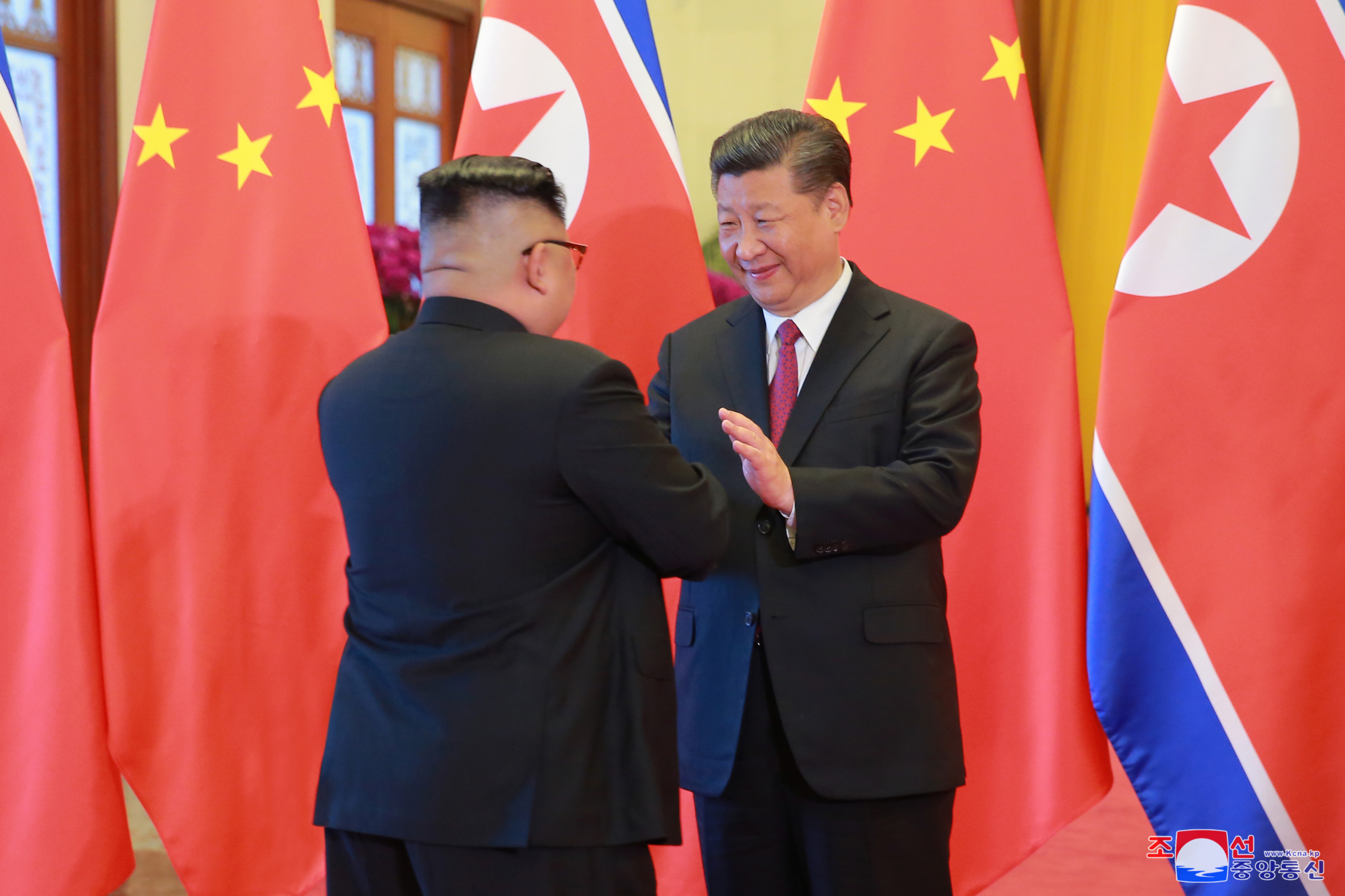
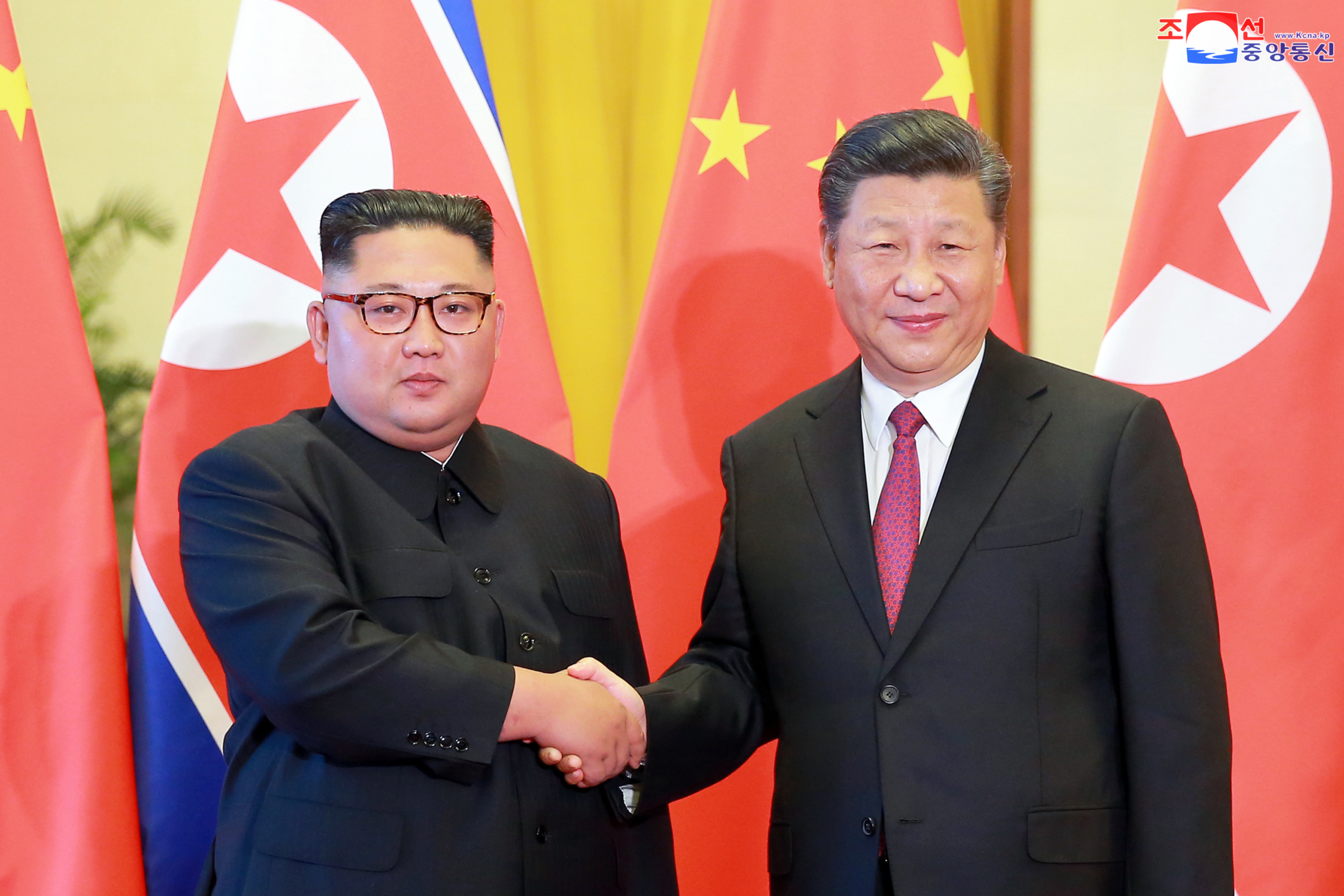
Around 1700 Beijing time on June 19, Kim Jong Un, Ri Sol Ju and the DPRK travel party were received with due ceremony by PRC President Xi Jinping and his wife the folk singer Peng Liyuan at the Great Hall of the People. President Xi welcomed Jong Un to China and posed for a souvenir photograph. Jong Un “expressed thanks to Xi Jinping for sparing time to accord heartwarming hospitality.” Then, Ri Sol Ju and Peng Liyuan joined their husbands for some souvenir photographs. At the welcome ceremony, Kim Jong Un greeted the various PRC senior officials that congregated there, and President Xi greeted the DPRK officials.
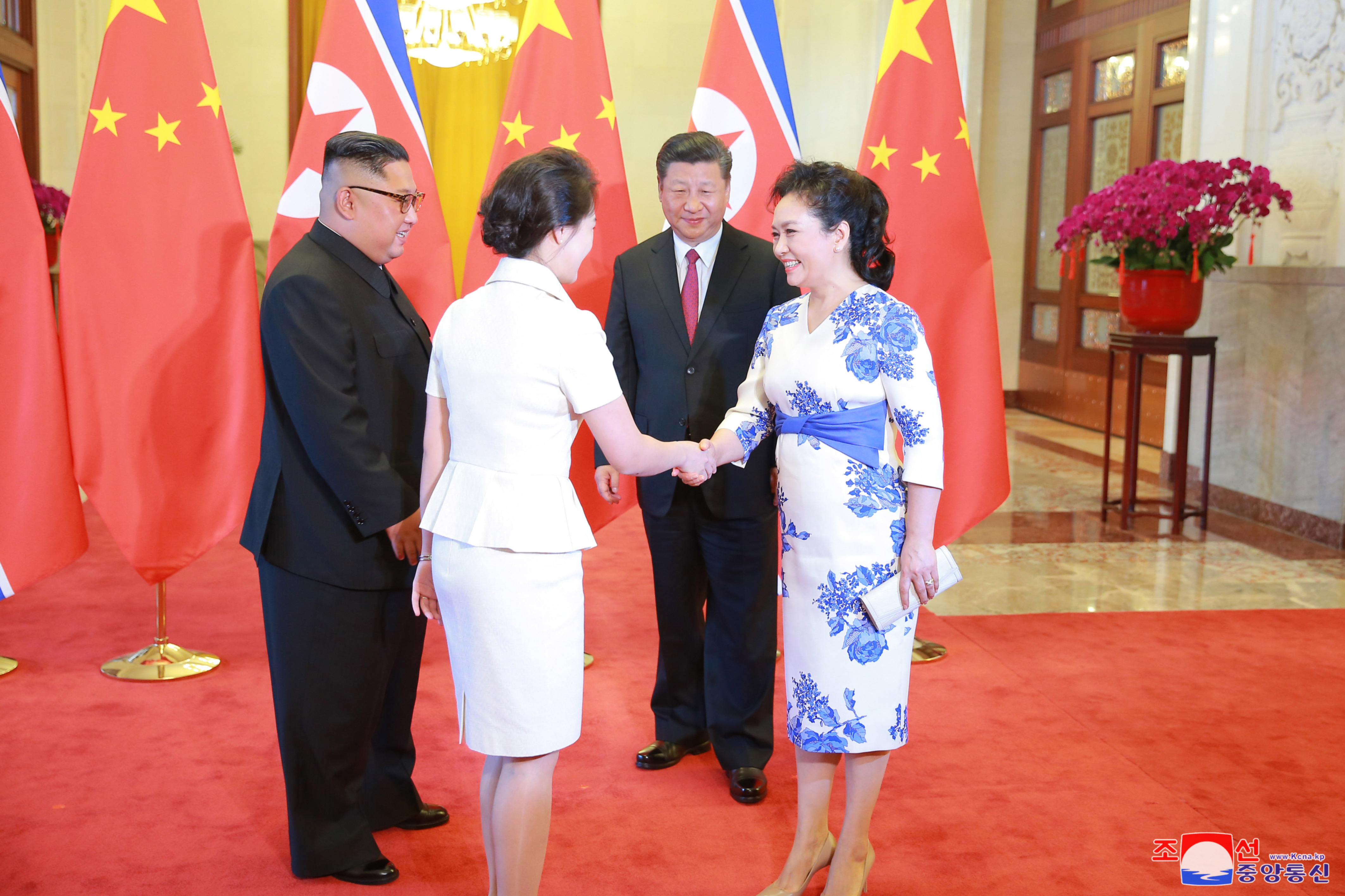
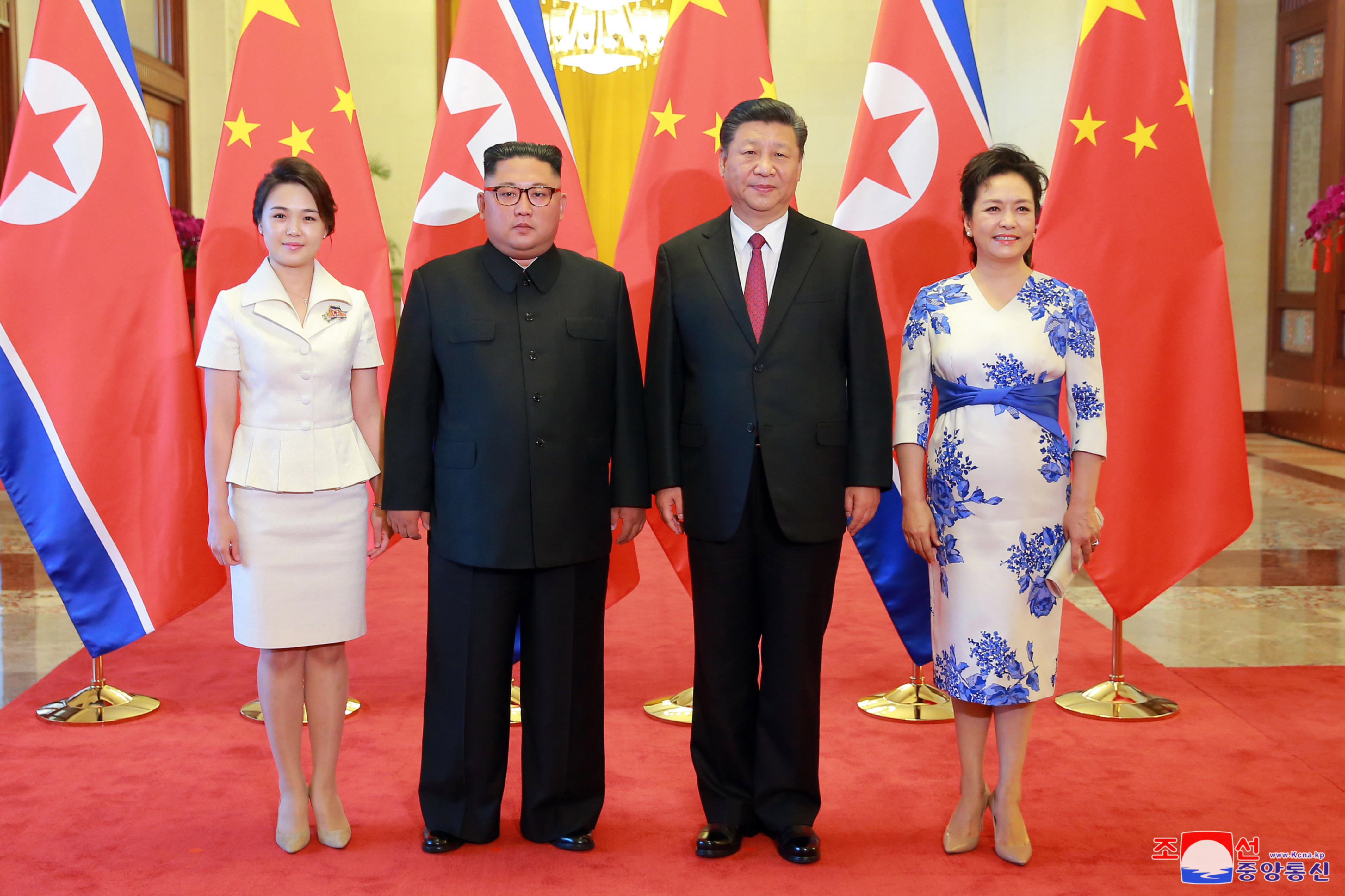
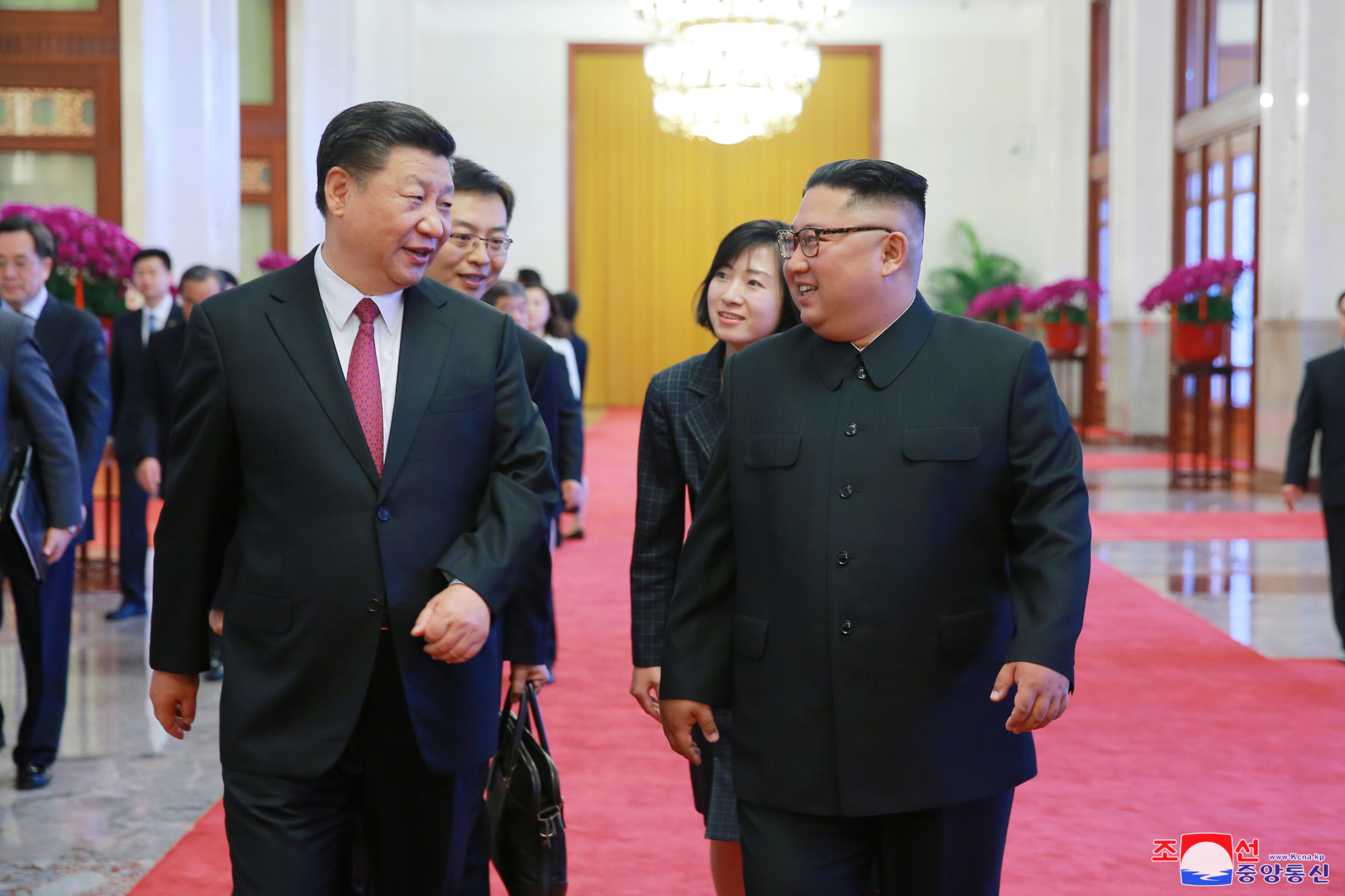
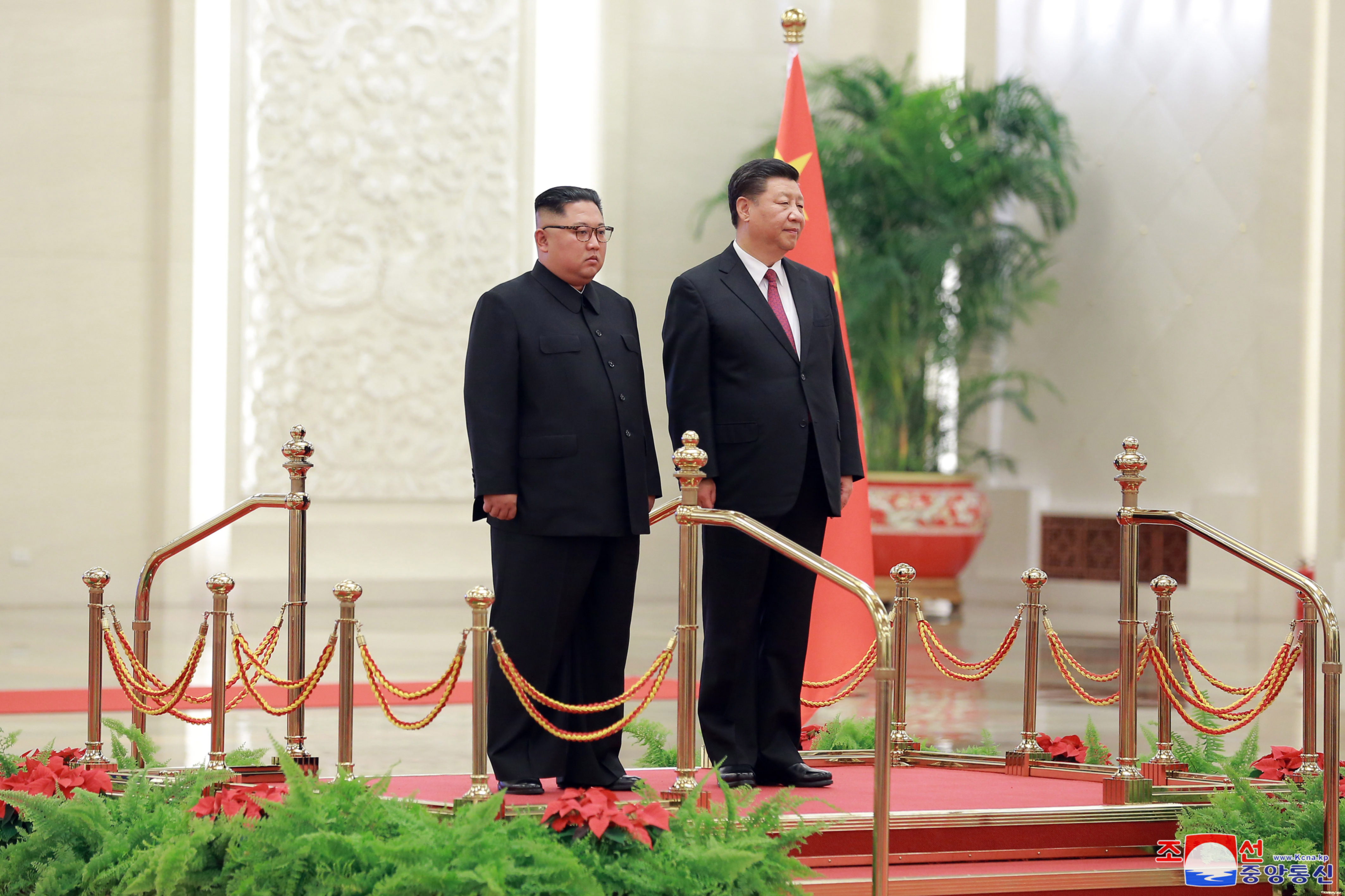
Jong Un and President Xi got on a small platform while the DPRK and PRC national anthems were played. Thereafter, KJU received a salute from the head of the PLA’s honor guard representing the Chinese military’s three service branches, then with President Xi, conducted a review of said honor guard. A group of children waving the DPRK and PRC flags presented floral bouquets to the two leaders.
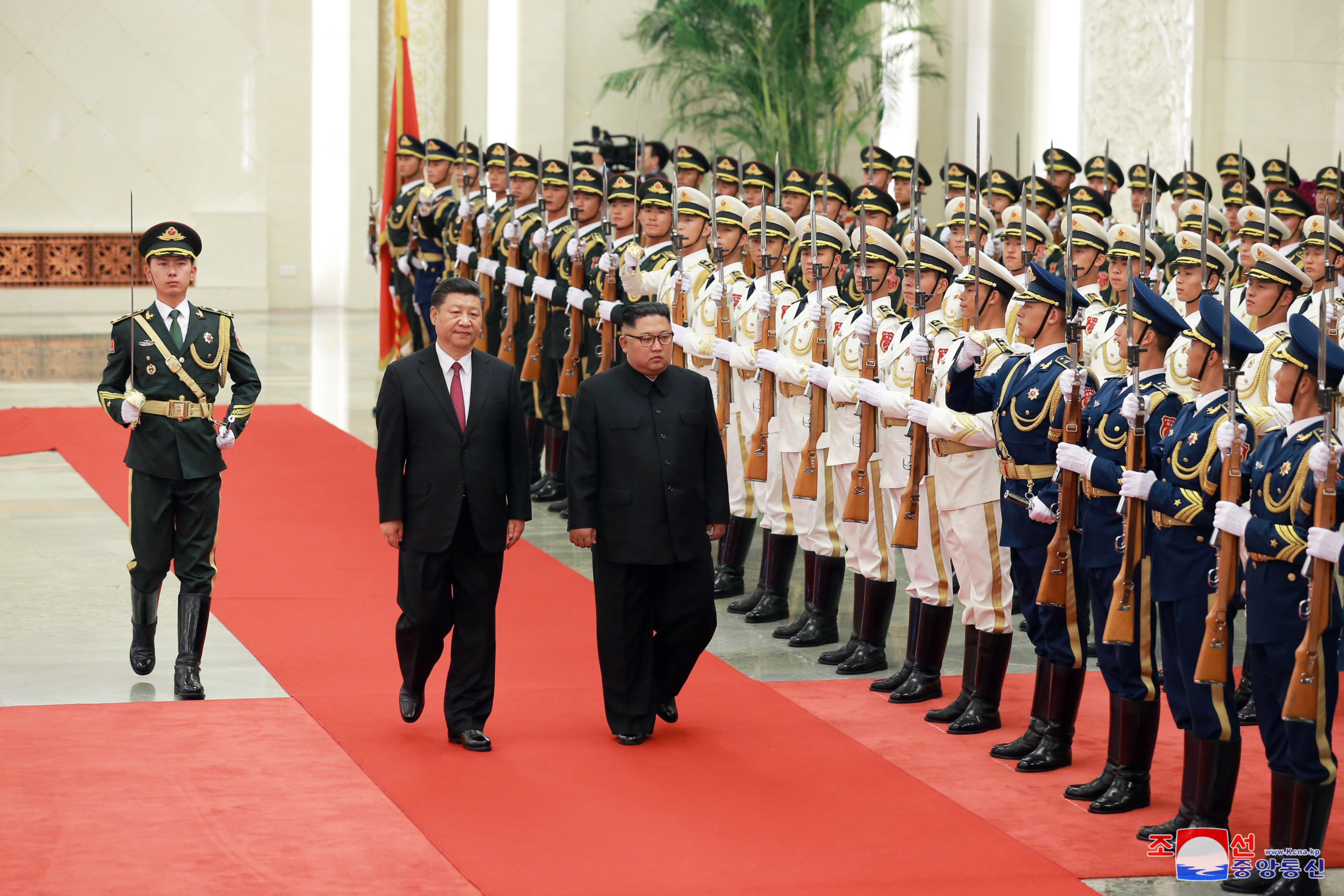
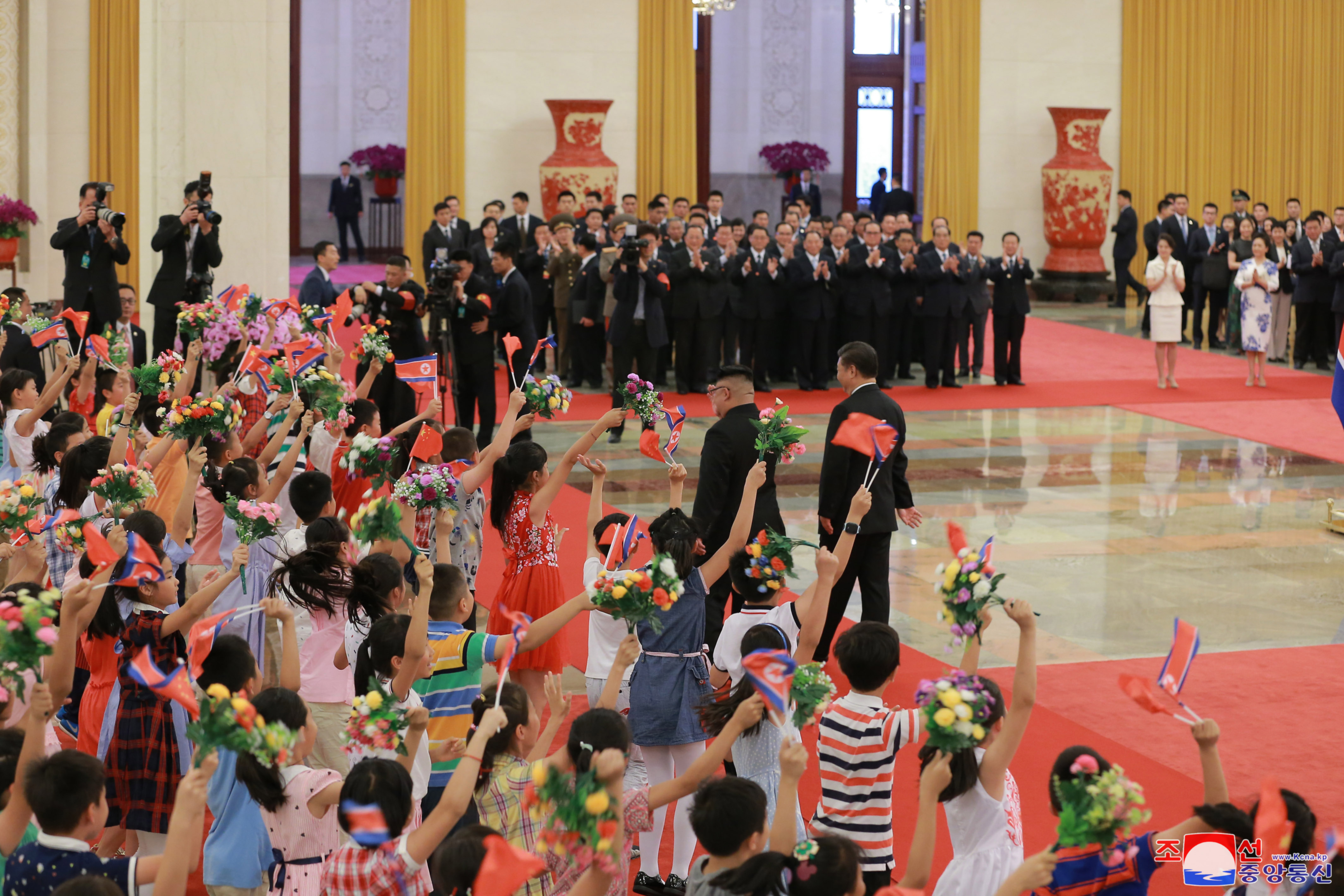
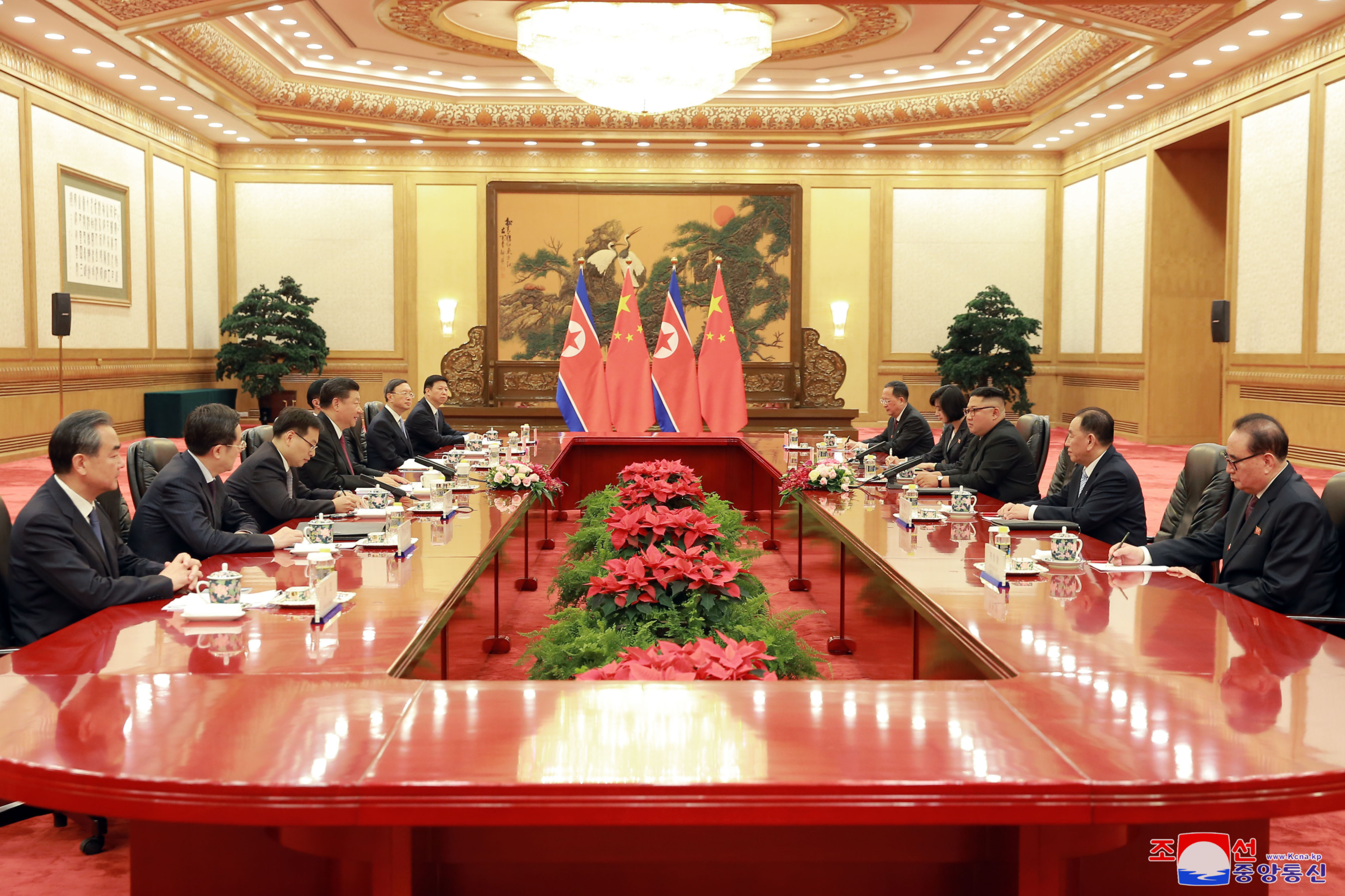
After the welcome ceremony, Kim Jong Un met with President Xi. Attending from the DPRK were Ri Su Yong, Kim Yong Chol and Ri Yong Ho. From the PRC Wang Huning, CPC General Office Director and Secretary Ding Xuexiang, CPC Foreign Affairs Office Director Yang Jiechi, Minister of Foreign Affairs Wang Yi and Song Tao.
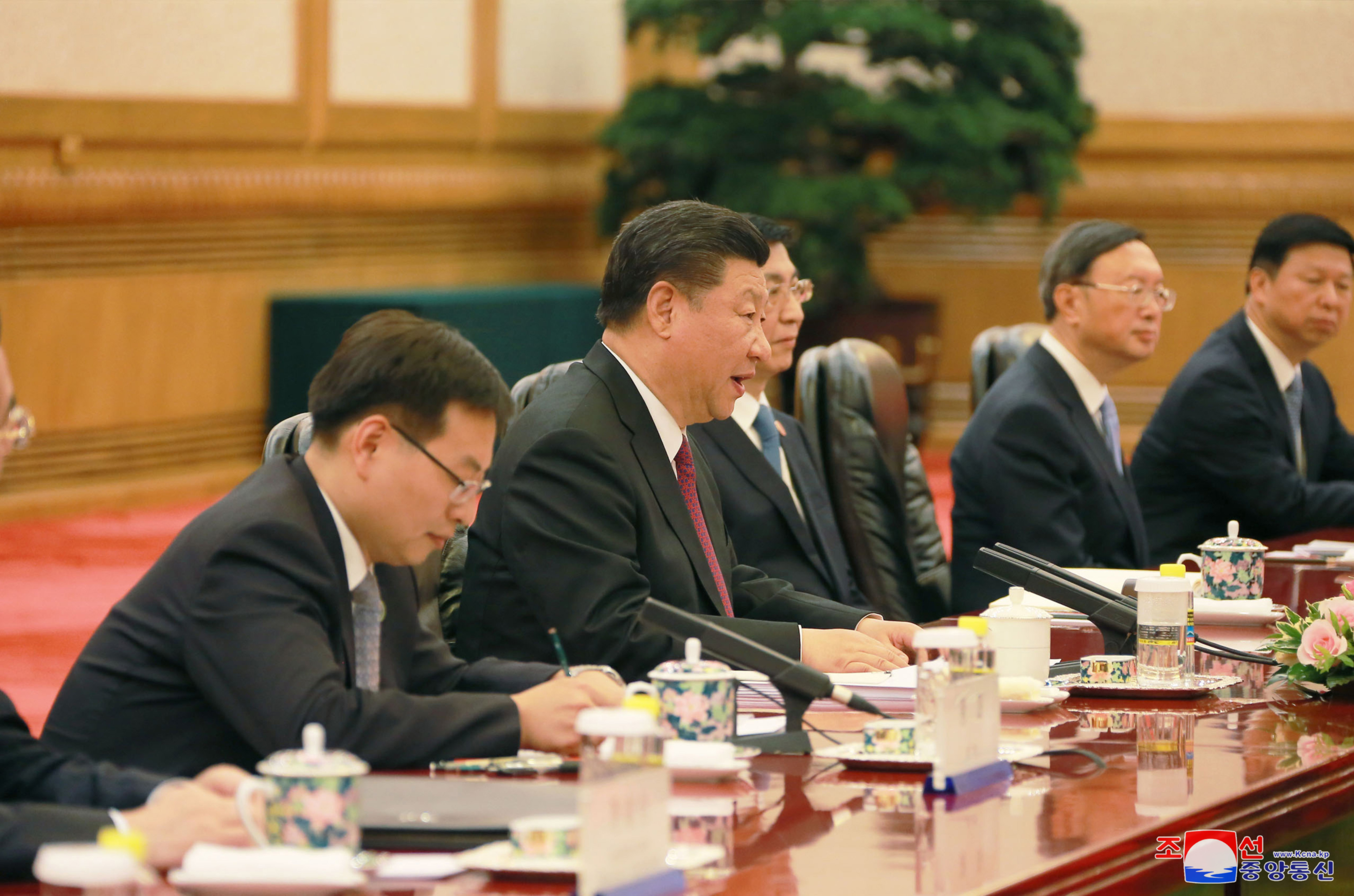
According to DPRK state media, Kim Jong Un briefed President Xi and the senior PRC officials about “the result of the historic DPRK-US summit, which was successfully held amidst the unusual interest and expectation of the international community.” The sides expressed their perspective on the summit and “beneficial views on a series of issues of mutual concern including the prospect for the denuclearization of the Korean Peninsula were exchanged and a shared understanding on the discussed issues achieved.” Jong Un “expressed thanks to the Chinese party and government for positive and sincere support and good help for the successful DPRK-US summit meeting and talks.”
Kim Jong Un said he was “much pleased with and values the recently strengthened strategic cooperation between the two parties and the mutual confidence getting further deepened” and expressed his “determination and will to further develop the closer relations of friendship, unity and cooperation between the two parties and the two peoples of the DPRK and China.” President Xi “gave high appreciation and extended heartfelt congratulations to Chairman Kim Jong Un for having steered the DPRK-US summit meeting and talks successfully and put the situation of the Korean Peninsula on the track of dialogue, negotiation, peace and stability.”
Xi Jinping voiced “full support for the stand and determination of the DPRK side for the denuclearization of the Korean Peninsula” and remarked “that China will continue to play its constructive role in the future, too.” The interaction “proceeded in a comradely, candid and friendly atmosphere.”
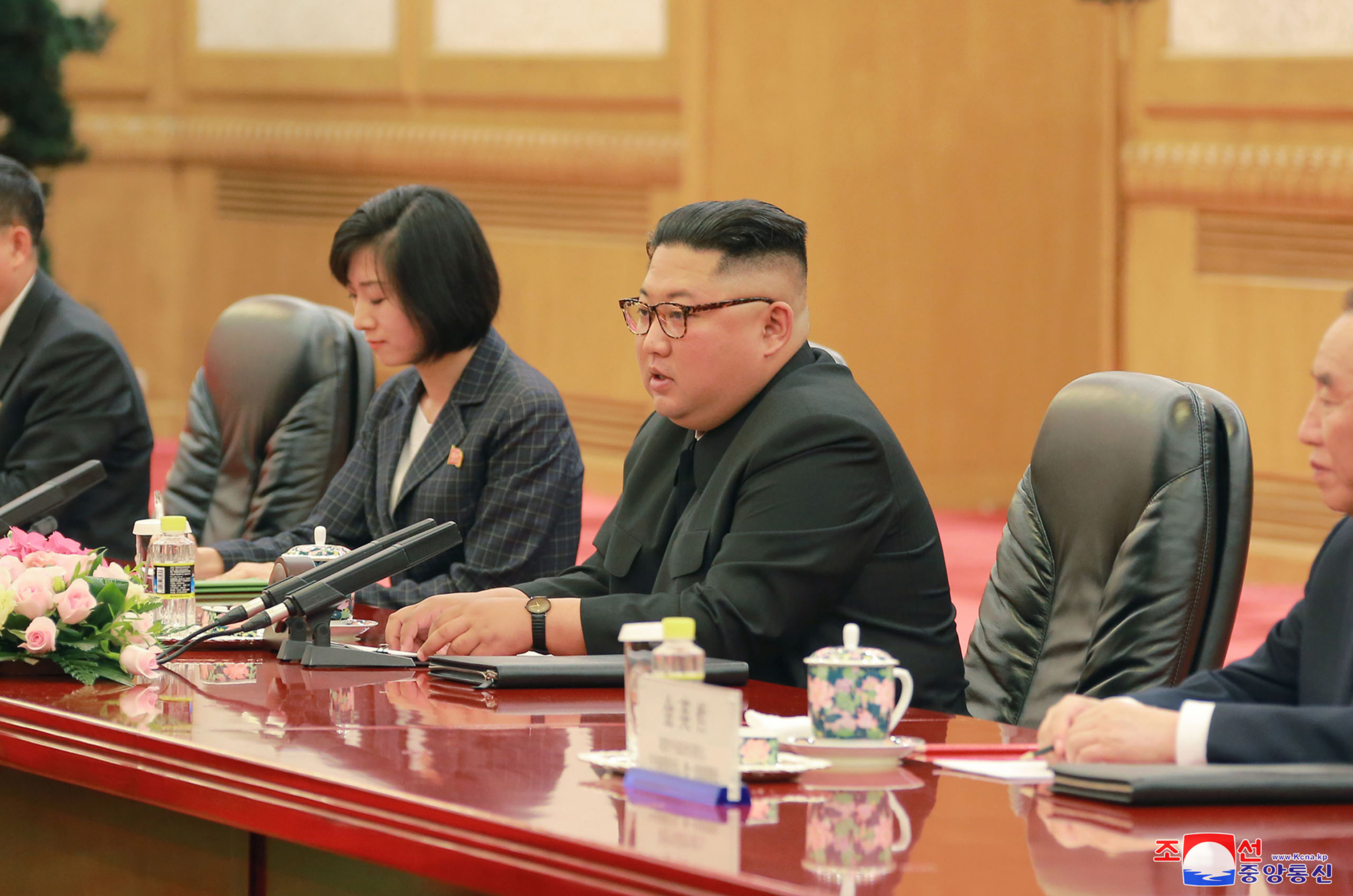
According to Xinhua, the “two leaders had a candid and in-depth exchange of views on the current development of China-DPRK relations and the situation on the Korean Peninsula” and “agreed to safeguard, consolidate and develop China-DPRK relations, and jointly push forward the sound momentum of peace and stability of the Korean Peninsula to make a positive contribution to safeguarding world and regional peace, stability, prosperity and development.” President Xi said that “China was pleased to see the important summit between Comrade Chairman and U.S. President Donald Trump in Singapore achieve principled consensus and positive results in realizing the denuclearization of the Korean Peninsula and establishing a lasting peace mechanism on the Peninsula. China speaks highly of the summit Comrade Chairman’s visit to China showed the great importance he attaches to the strategic communication between the two parties and two countries.”
President Xi expressed “his appreciation” to Kim Jong Un and stressed that “he and Kim had met three times in less than three months, which pointed out the direction for the development of the relations between the two parties and the two countries, and opened a new chapter in the development of China-DPRK relations.The CPC and the Chinese government attach great importance to China-DPRK friendly cooperative ties. No matter how the international and regional situations change, the firm stance of the CPC and the Chinese government on consolidating and developing the relations with the DPRK remains unchanged, the Chinese people’s friendship with the DPRK people remains unchanged, and China’s support for the socialist DPRK remains unchanged.”
He also “voiced his willingness to work with Kim to continue implementing the important consensus reached by both sides, and promoting the long-term development of China-DPRK relations in a healthy and stable way, to benefit the two countries and the two peoples.” Xi said that “This year marks the 40th anniversary of China’s reform and opening-up policy. Since the reform and opening-up, the Chinese people have been courageous to carry out self-reform and innovation, on the basis of the national conditions and having the whole world in view, and have explored a development path suitable for China’s national conditions. We are happy to see that the DPRK made a major decision to shift the focus to economic construction, and the development of the DPRK’s socialist cause has entered a new stage in history. China supports the DPRK’s economic development, the improvement of people’s livelihood, and its development path that accords with its national conditions.”
Kim Jong Un said he was “very happy to meet with General Secretary Xi Jinping again in a short period of time” and stressed that “China is DPRK’s great friendly neighbor, and Comrade General Secretary Xi Jinping is a great leader who is greatly respected and trusted by the DPRK people.” Jong Un remarked that he “appreciated the sincere friendship of and valuable support from Comrade General Secretary Xi Jinping and the CPC, the Chinese government, and the Chinese people, to himself, the WPK, the DPRK government, and the DPRK people.I will guide all WPK members and the DPRK people to earnestly implement the important consensus reached by Comrade General Secretary and me, to lift the unbreakable DPRK-China relations to a new level.”
President Xi Jinping said that “for a period of time, with joint efforts of parties concerned, the Korean Peninsula issue had been put back on the right track of seeking settlement through dialogue and consultation, and the situation on the Peninsula was developing towards peace and stability. Comrade Chairman has made positive efforts for realizing denuclearization and maintaining peace on the Peninsula. The recent DPRK-US summit marked an important step forward in the political settlement of the Korean Peninsula nuclear issue.” President Xi called “on the two sides to implement the outcomes of the summit, and parties concerned to make concerted efforts to advance the peace process” and that “China will continue to play a constructive role to this end.”
Kim Jong Un said that “the DPRK-US summit had achieved positive results in line with the interests of concerned parties and the expectations of the international community. If the two sides can implement the consensus of the summit step by step solidly, the denuclearization of the Korean Peninsula will open up a new and important prospect.” Jong Un also remarked that the “DPRK greatly appreciated China’s important role in promoting denuclearization of the Peninsula as well as in maintaining peace and stability on the Peninsula. The DPRK side hopes to work with China and other concerned parties to promote the establishment of a lasting and solid peace mechanism on the Korean Peninsula, and make joint efforts to achieve lasting peace on the Peninsula.”

Xi Jinping hosted a welcome banquet for Kim Jong Un and Ri Sol Ju on the evening of June 19. KJU’s travel party attended the banquet, along with DPRK Ambassador to the PRC Ji Jae Ryong and senior embassy officials.
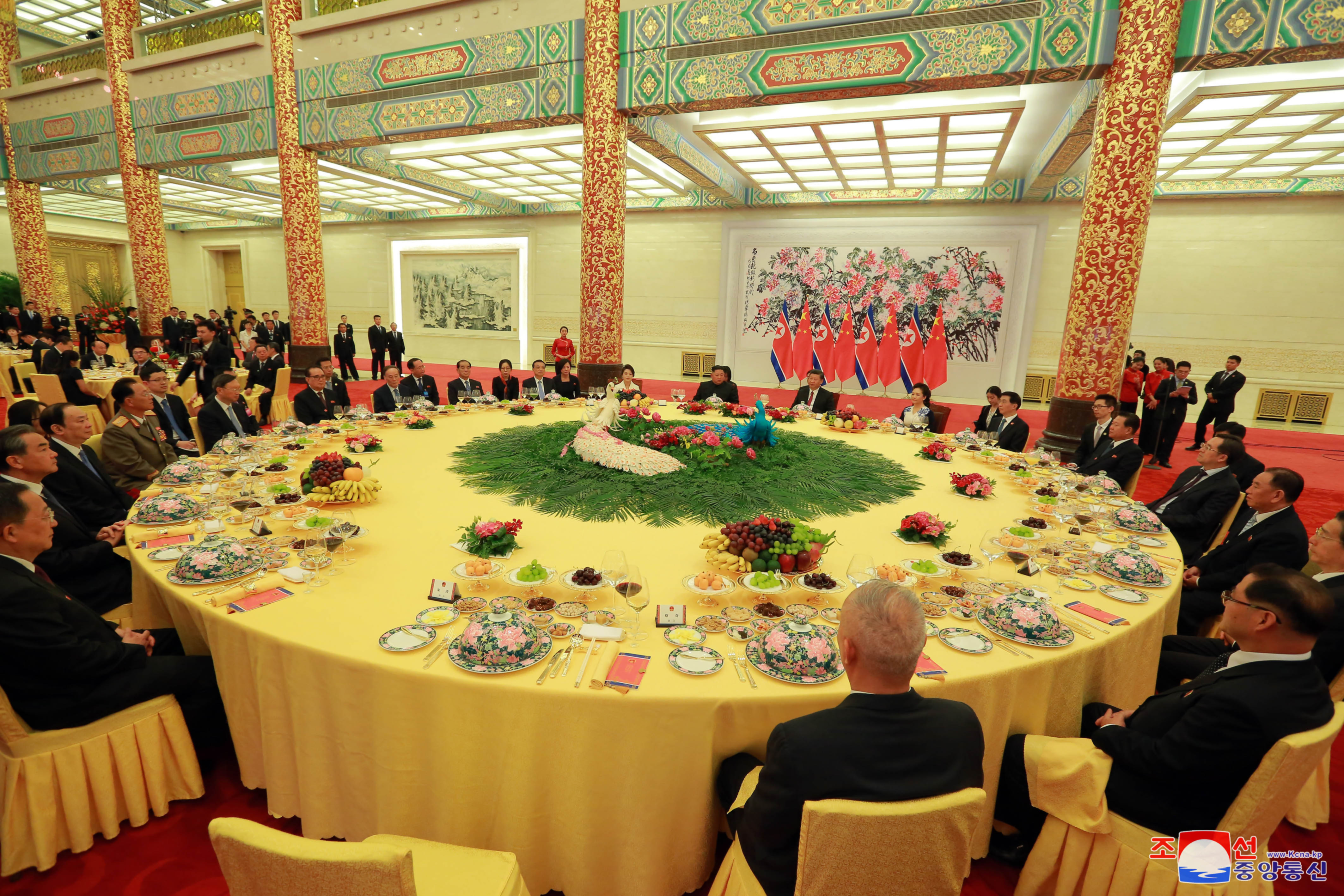
Attending from the PRC side were: Premier Li Keqiang, Wang Huning, Vice President Wang Qishan, Ding Xuexiang, Yang Jiechi, CPC Political and Legal Secretary Guo Shengkun, CPC Publicity Department Head Huang Kunming, Cai Qi, Wang Yi Song Tao and other CPC and PRC officials.
KJU and RSJ, along with President Xi and Peng Liyuan, entered the banquet hall. Before the proceedings began, a video presentation about DPRK-PRC interactions was played. Xi Jinping and Kim Jong Un delivered speeches.
President Xi “warmly welcomed Kim Jong Un’s China visit” and said “this fully showed his fixed will to attach great importance to the strengthened strategic communication between the two parties of China and the DPRK and develop the traditional friendship of the two countries and demonstrated to the whole world the invincibility of the relations between the two parties and two countries.” He also stated that “after Chairman Kim Jong Un’s China visit in March, the China-DPRK relations have entered a new phase of development and the important joint agreements of both sides are being implemented one by one and the China-DPRK relations of friendship and cooperation are in new vigor.”
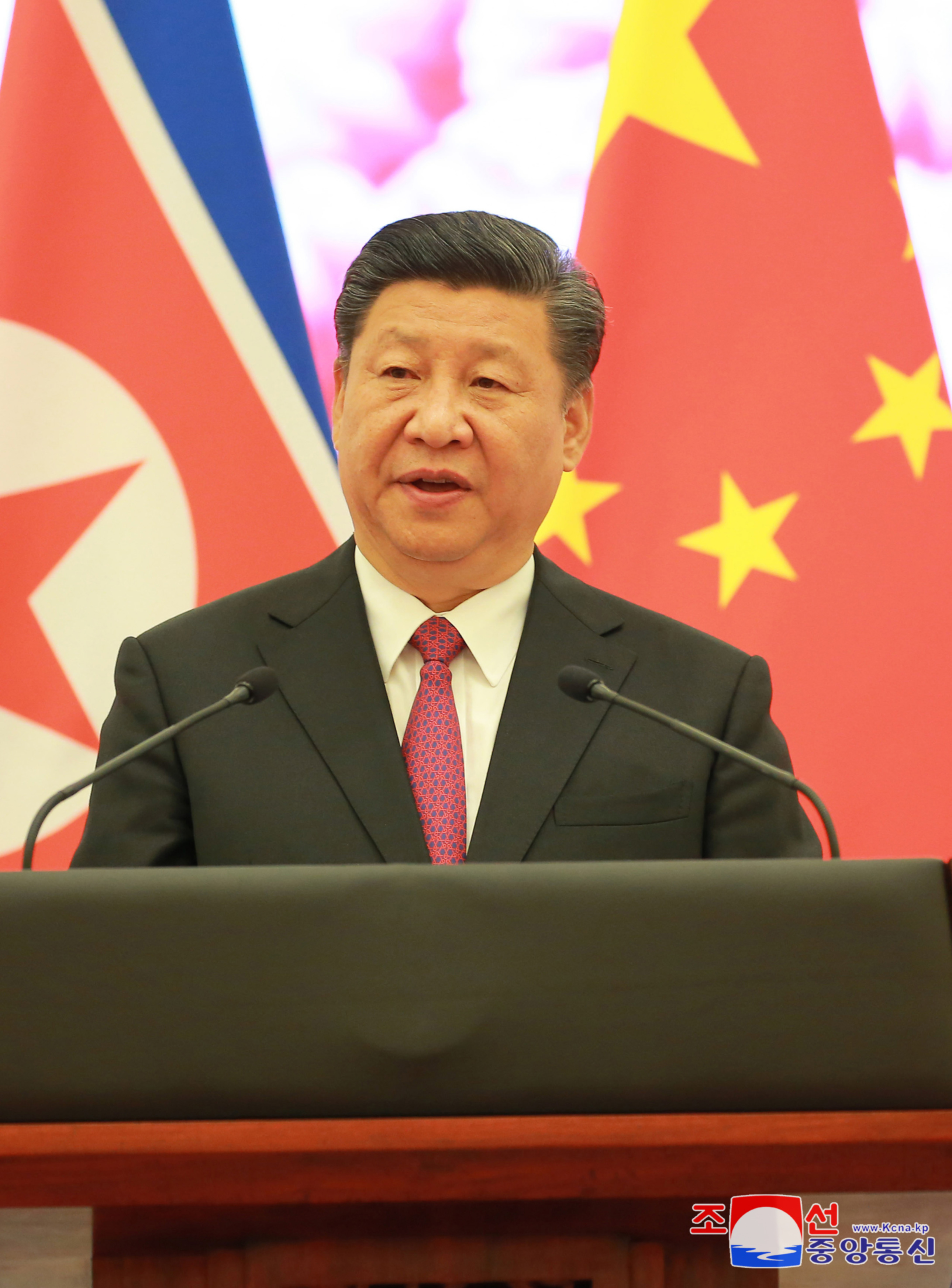
Xi noted that “Kim Jong Un has made great efforts to protect peace and stability of the Korean Peninsula by leading the Korean people and further consolidated the trend of dialogue and détente on the peninsula” and said that he was “pleased to see it and highly appreciates it.” President Xi “affirmed that China and the DPRK would learn, consult, unite and cooperate with each other as close friends and comrades to jointly open up rosier and beautiful future of the socialist cause in the two countries.”
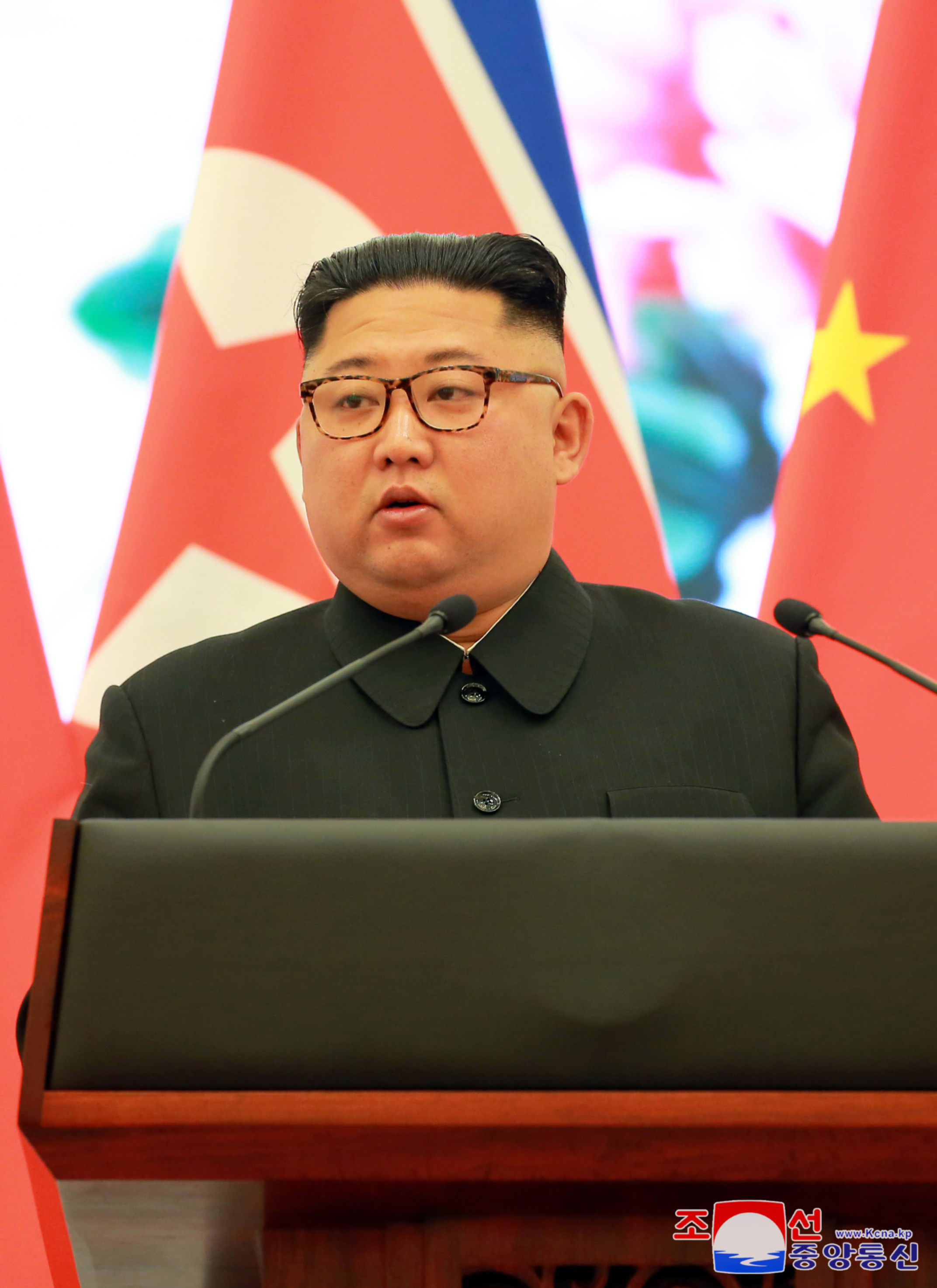
Kim Jong Un remarked that he was “very glad to meet again Xi Jinping and other close Chinese comrades at the time when a new historic current is being created in the Korean Peninsula and the region with the successful DPRK-U.S. summit” and express his ” heartfelt thanks to Xi Jinping for his cordial hospitality despite the pressure of work.” Jong Un said that the “picture of the DPRK and China sharing joy and sorrow and sincerely helping and cooperating with each other like family members clearly demonstrates at home and abroad that the relations between the two parties and two countries are developing into the unprecedentedly special relationship beyond the traditional ties.”

He stated “that he would make every possible effort to steadily develop the DPRK-China friendly relations onto a new high level, valuing affinity and affection forged with Xi Jinping” and said that “he would closely cooperate with the Chinese comrades at the same staff in the historic journey of defending socialism and opening up a new future of the Korean Peninsula and the region, and fully discharge his responsibility and role to protect genuine peace.” Kim Jong Un expressed his “belief and expectation that the Chinese people would surely realize the dream of China called the great prosperity of China in the near future under the leadership of Xi Jinping and the Communist Party of China.”
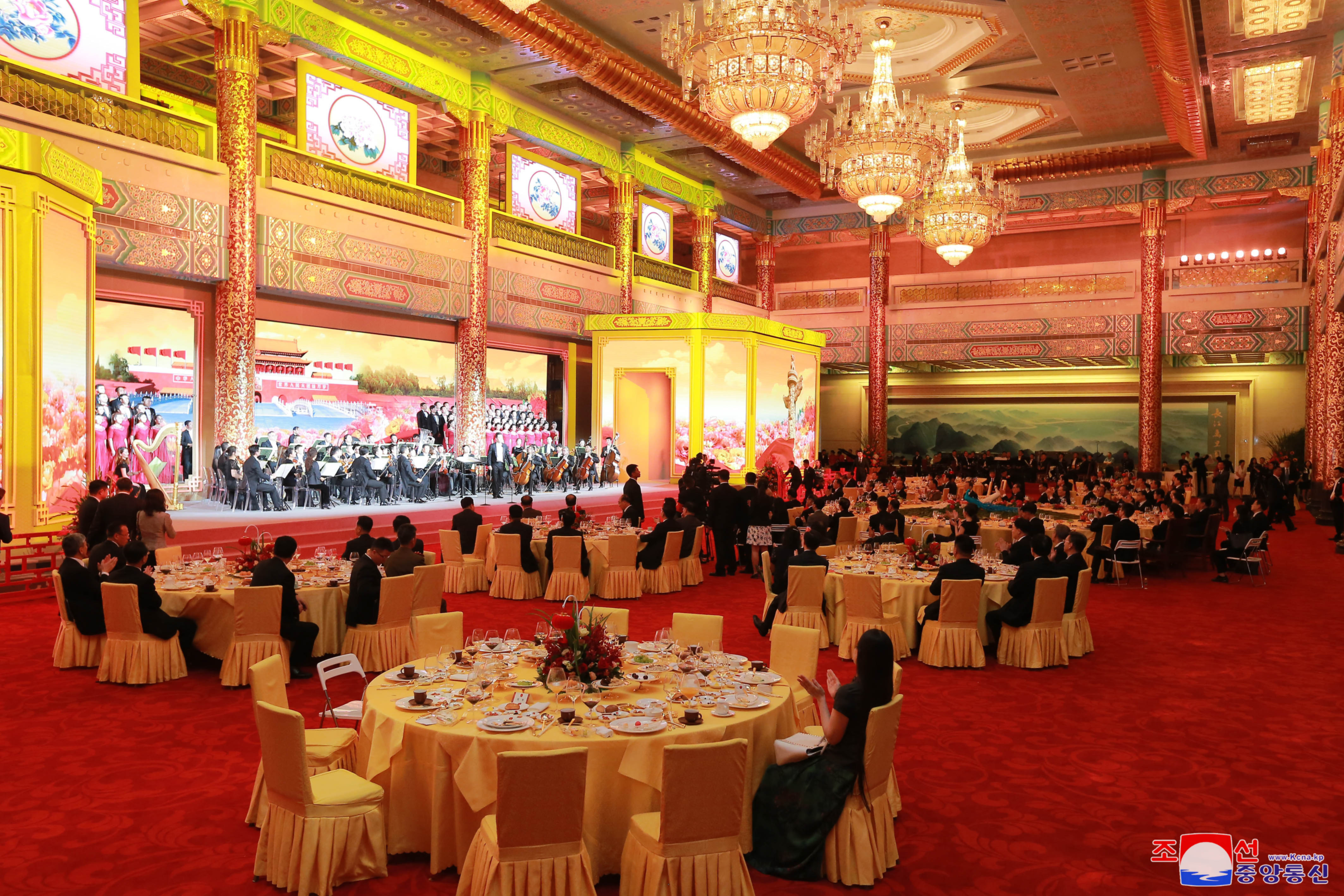
A concert and art performance was given by Chinese singers and players to welcome Kim Jong Un’s third visit to the PRC. A floral basket from him was delivered to the troupe “on their excellent performance.” Jong Un, Ri Sol Ju, President Xi and Madame Peng took the stage to express their “thanks for the enthusiasm and efforts of the artistes who prepared the art performance with sincerity,” then they posed for commemorative photos.” Kim Jong Un “expressed thanks to the Chinese party and government for their special care and warm hospitality.”
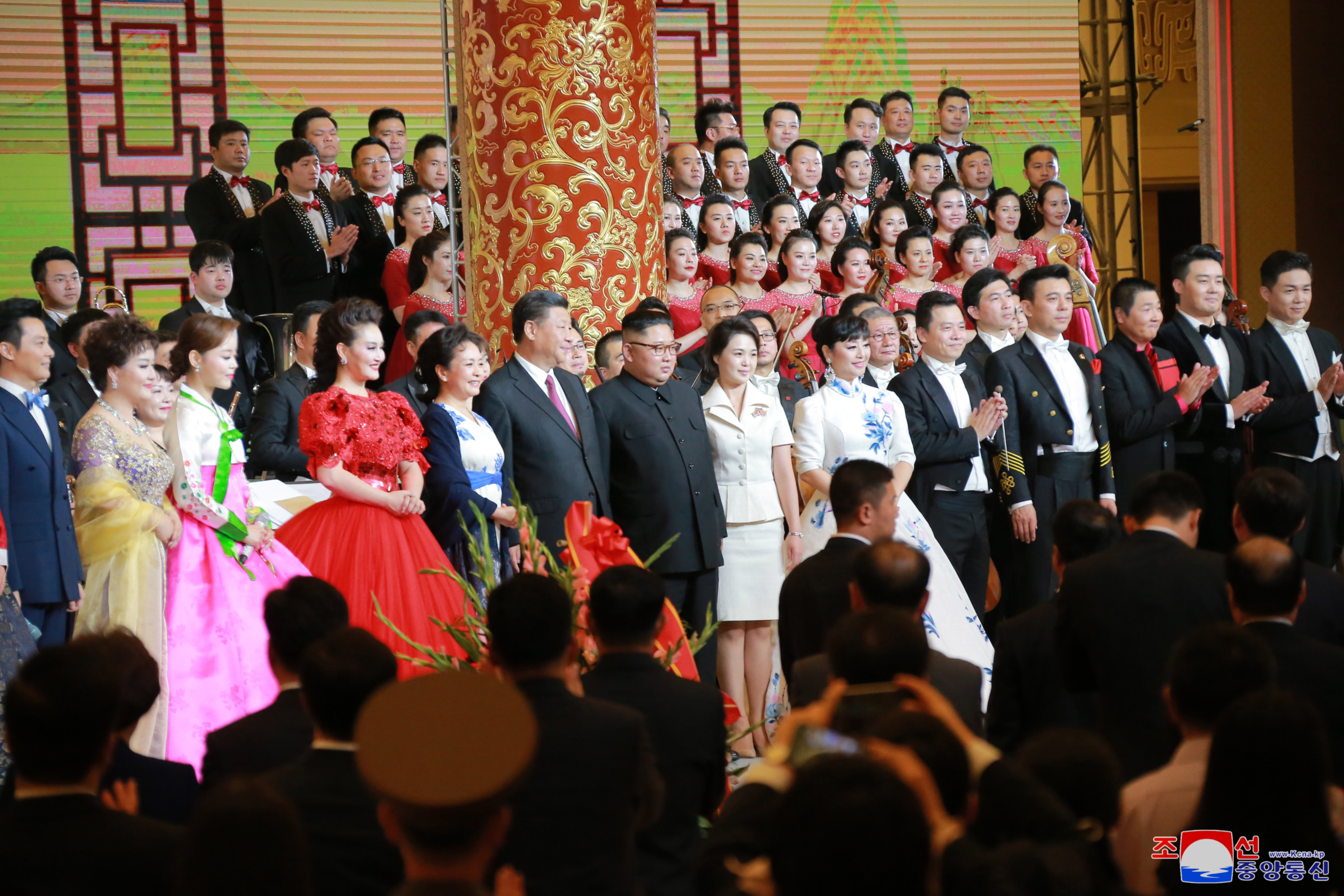
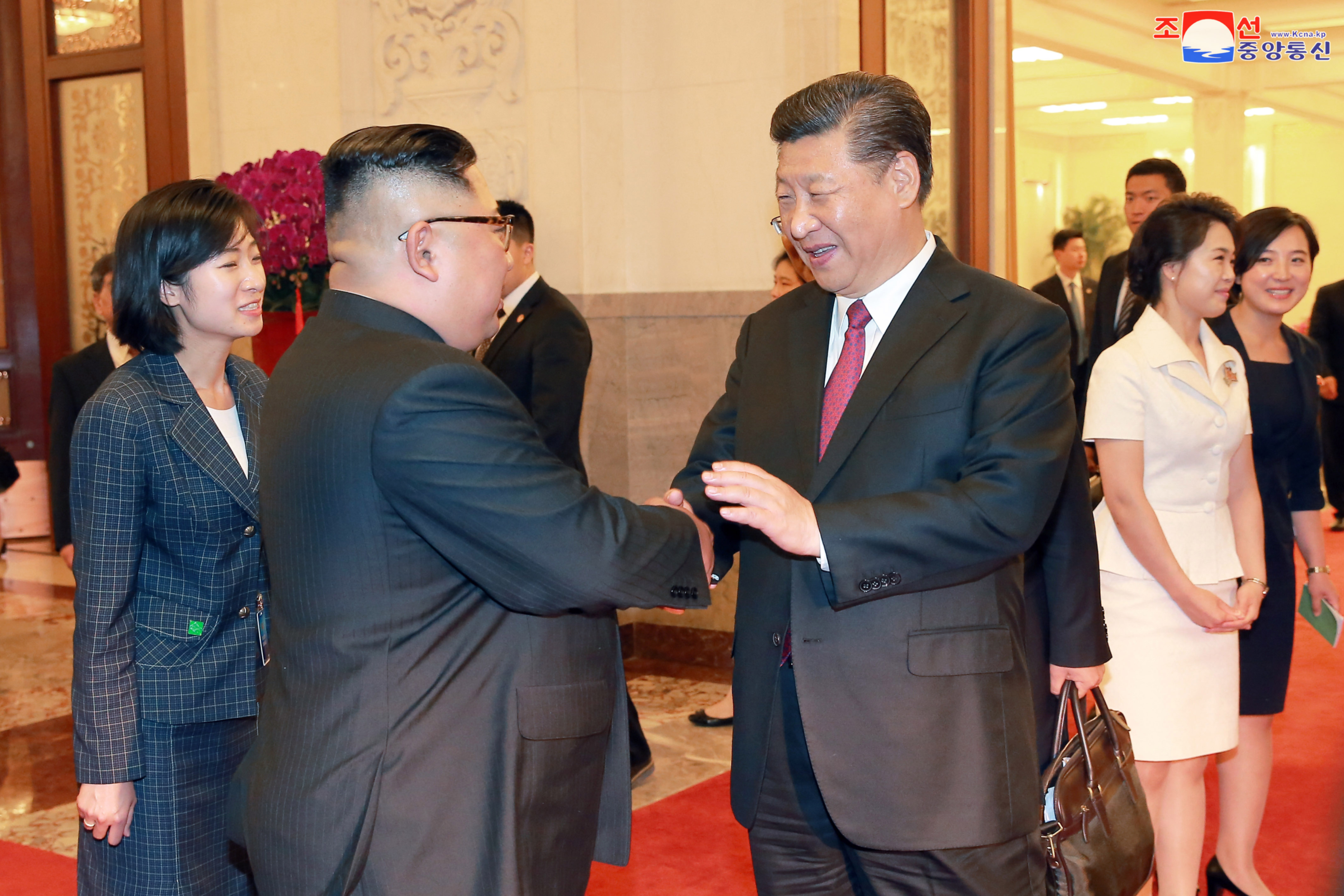
On the morning of June 20 (Wednesday), Kim Jong Un made two on-site visits under the guidance of senior PRC officials and accompanied by Ri Sol Ju and his travel party. His first stop was the State Agricultural Science and Technology Institute under the Chinese Academy of Agricultural Sciences. He was greeted Academy President Tang Huajun and officials of the institute.
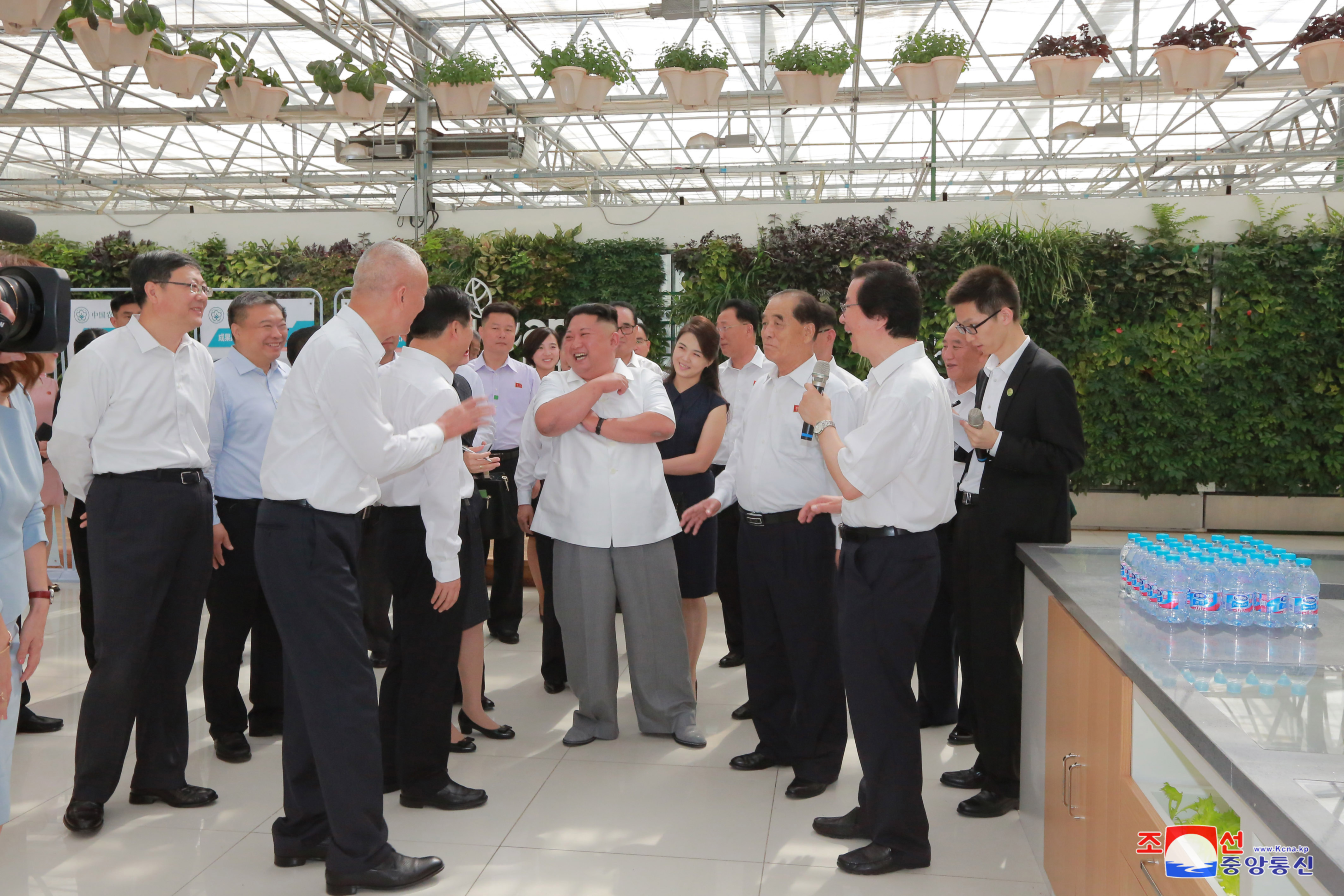
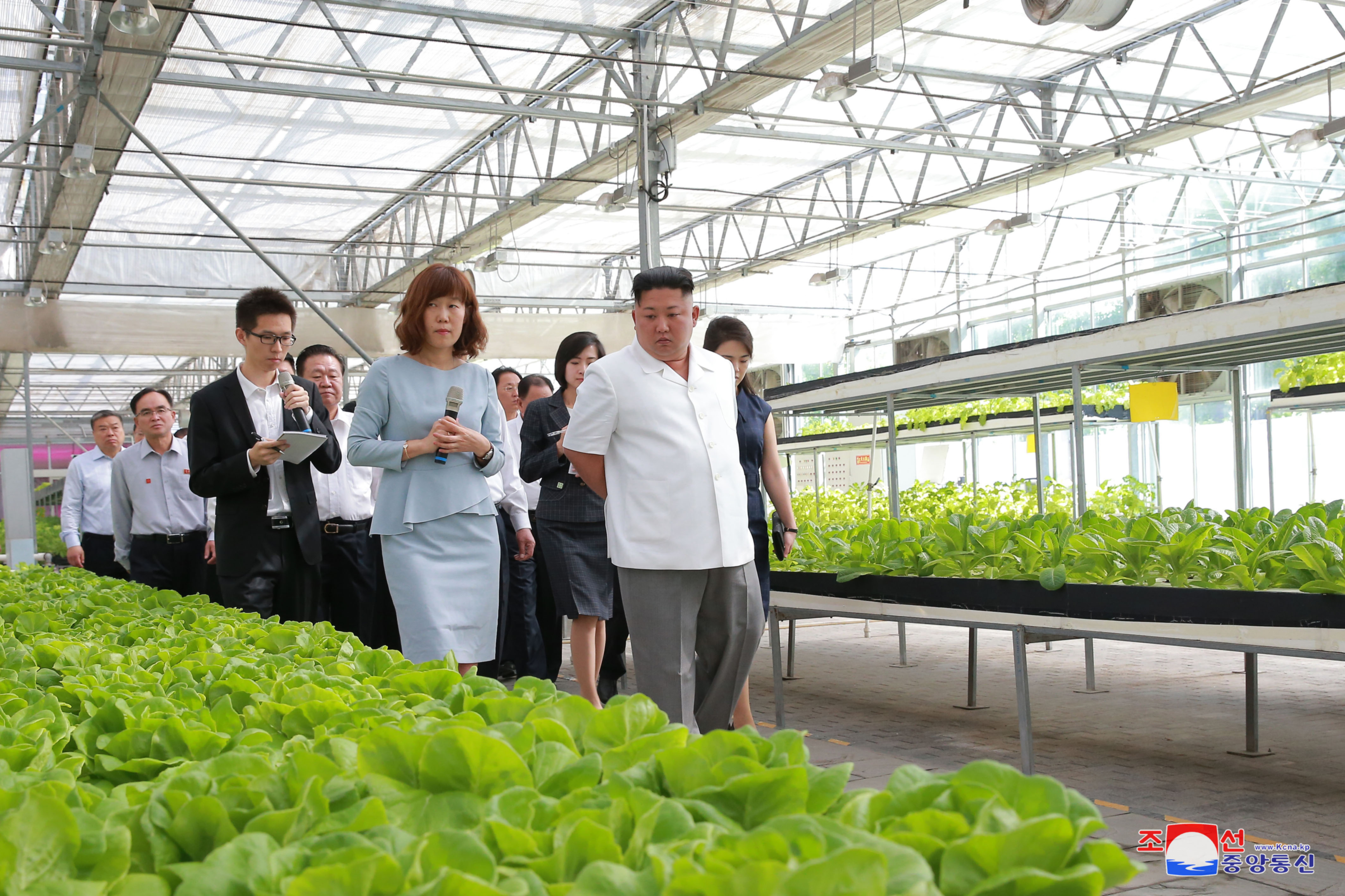
He toured the exhibition halls, a cultivation research center, a fruit cultivation technology research center, an urban agriculture research center, a residential zone agricultural application exhibition and other places. Jong Un “learned in real earnest about the successes and experience gained in the researches of agricultural science and technology” and noted “with high appreciation that the research group of the institute has registered good successes in science and technology researches conducive to the agricultural development of the country.”
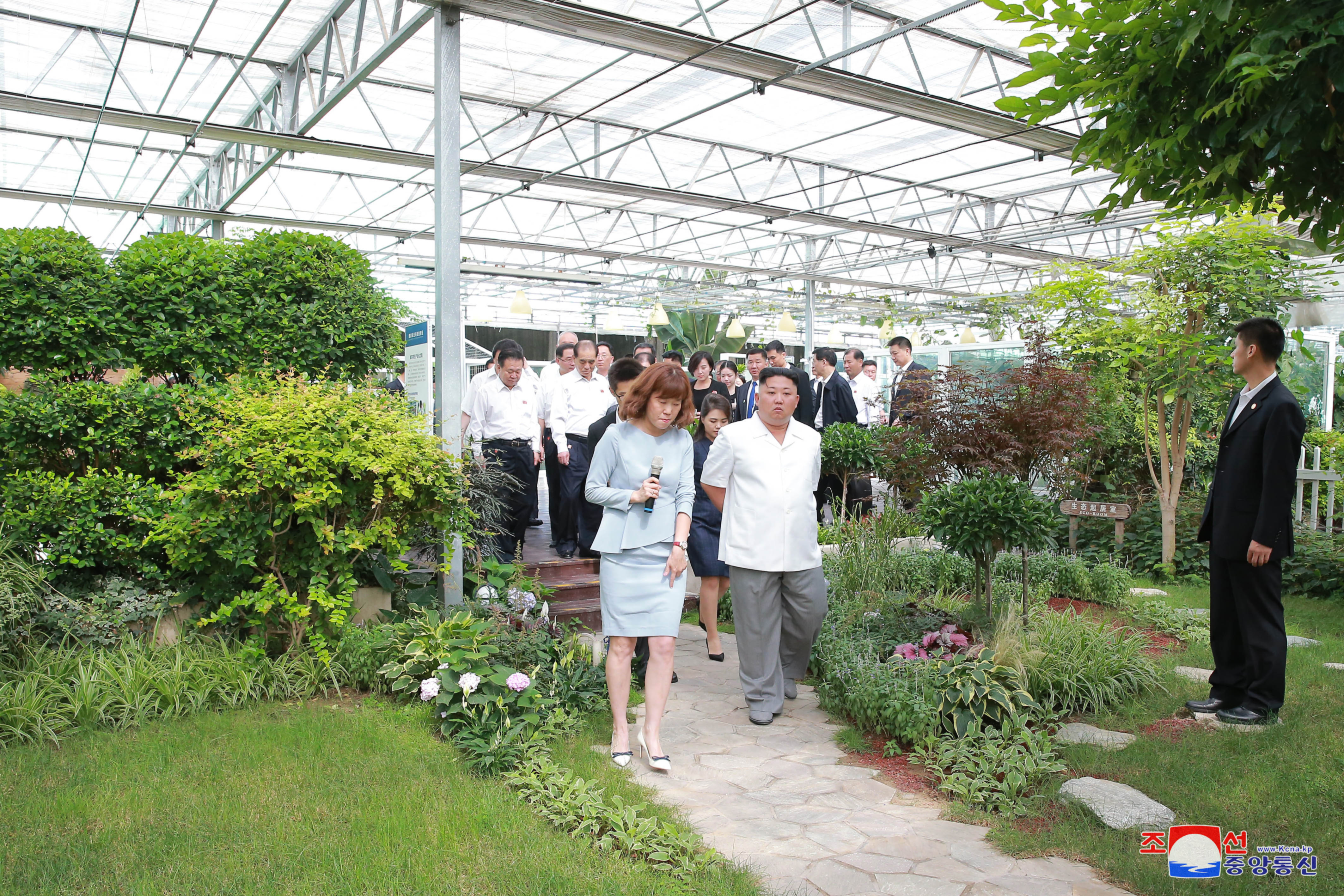
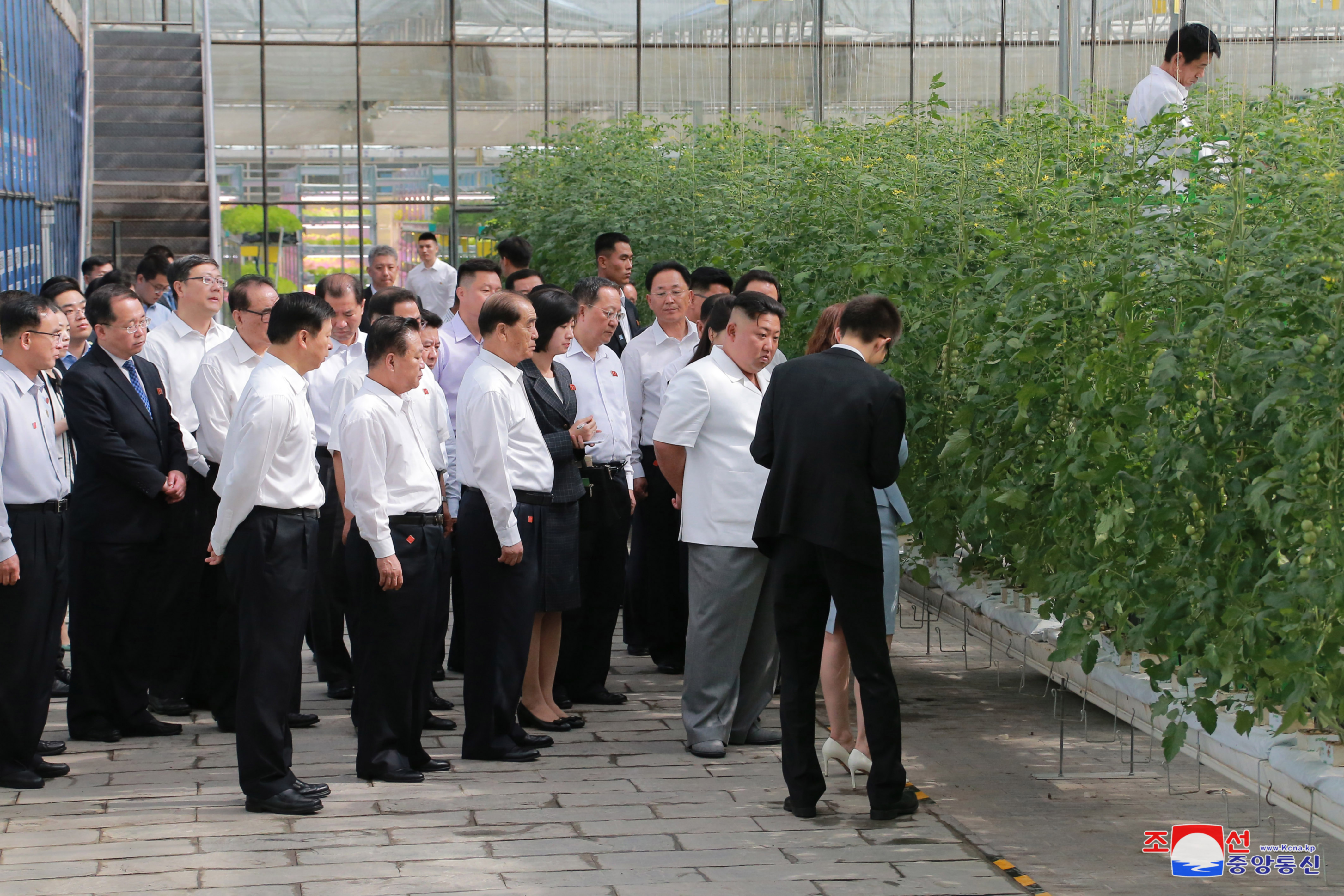
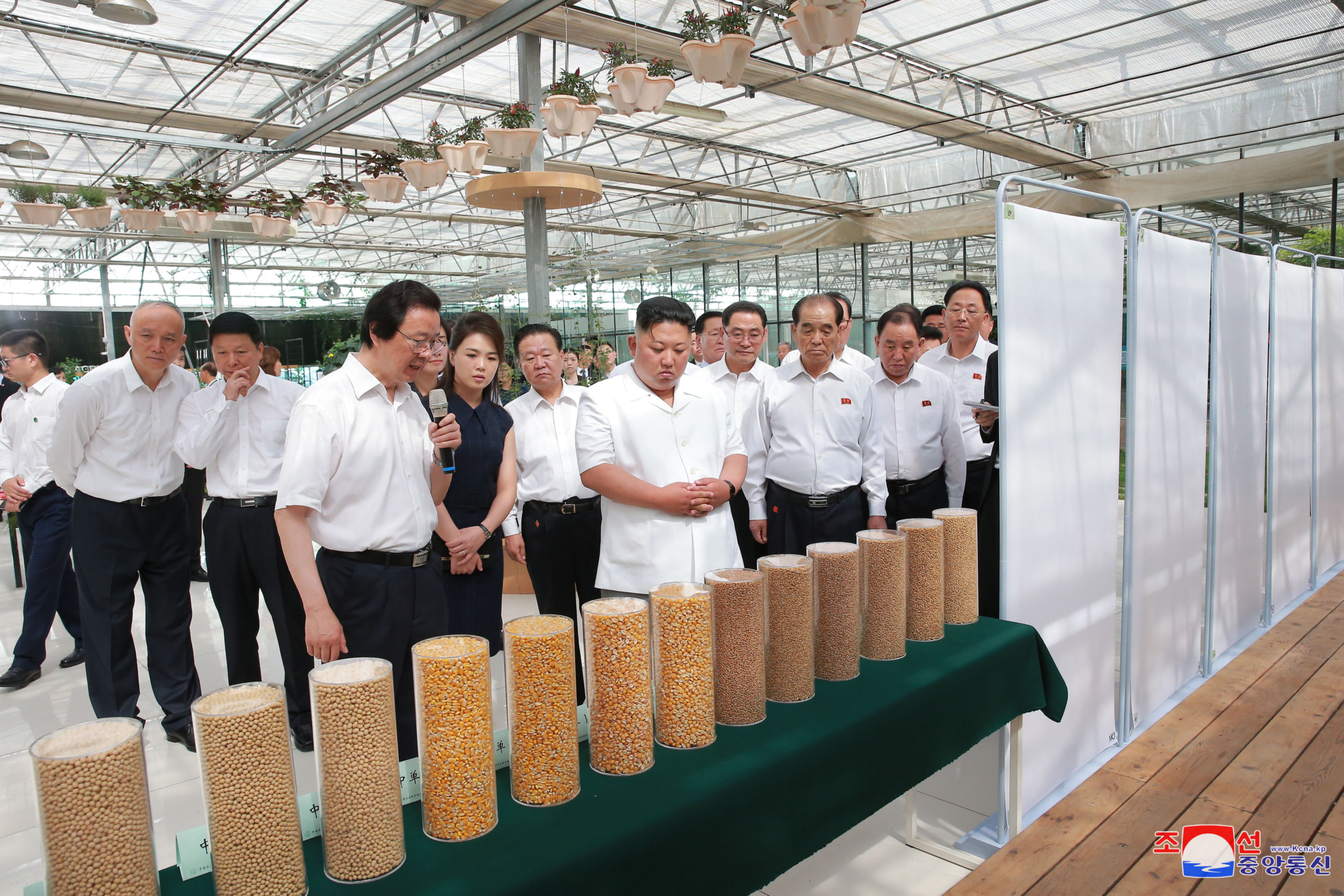
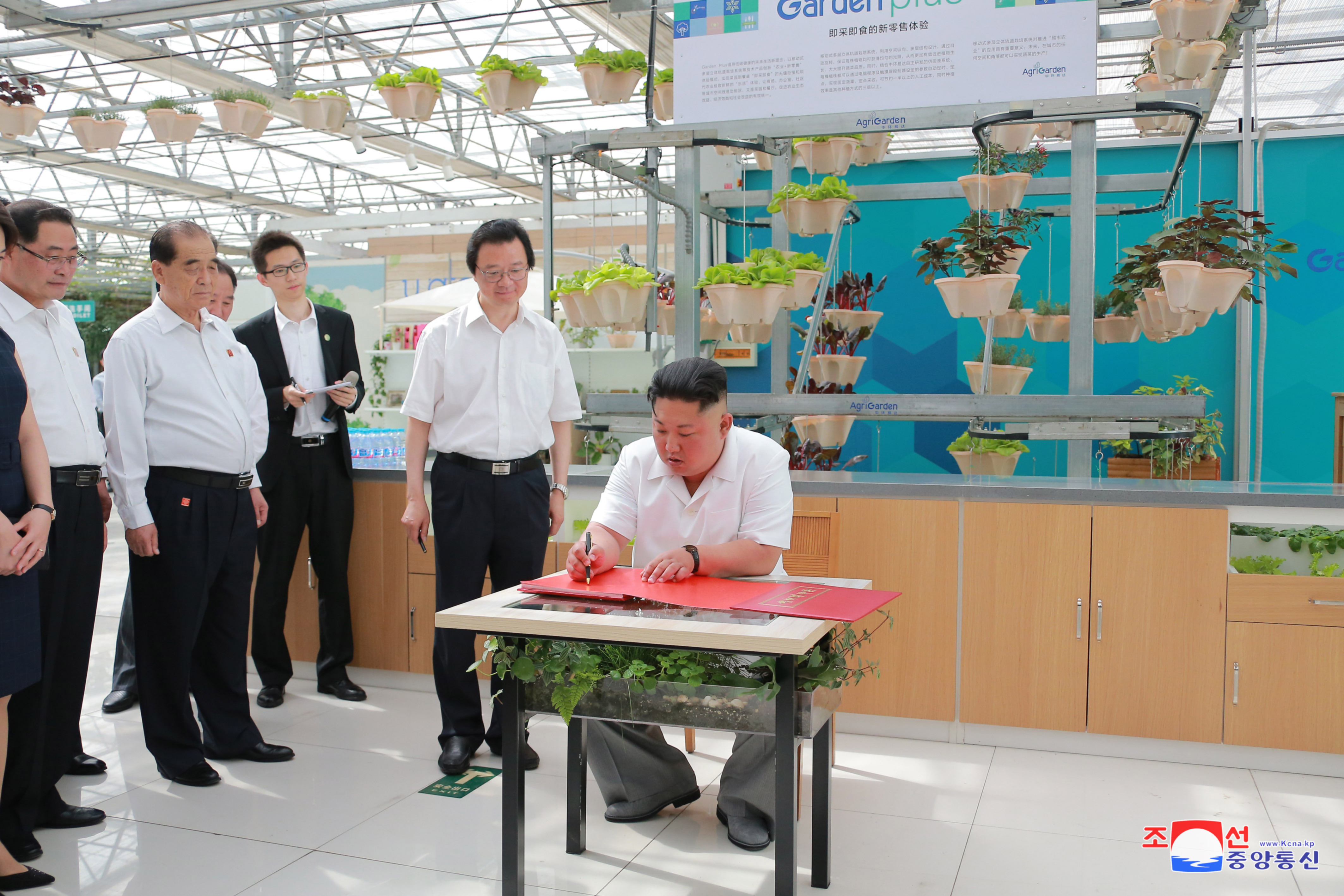
Kim Jong Un expressed “thanks to leading officials of the Chinese Academy of Agricultural Sciences and the institute for their kind explanation and guidance.” He signed a guest book in which he inscribed, “I greatly admire the good research successes gained by you. Kim Jong Un, June 20, 2018.” The institute then presented Kim Jong Un with plants they cultivated as a gift to him.
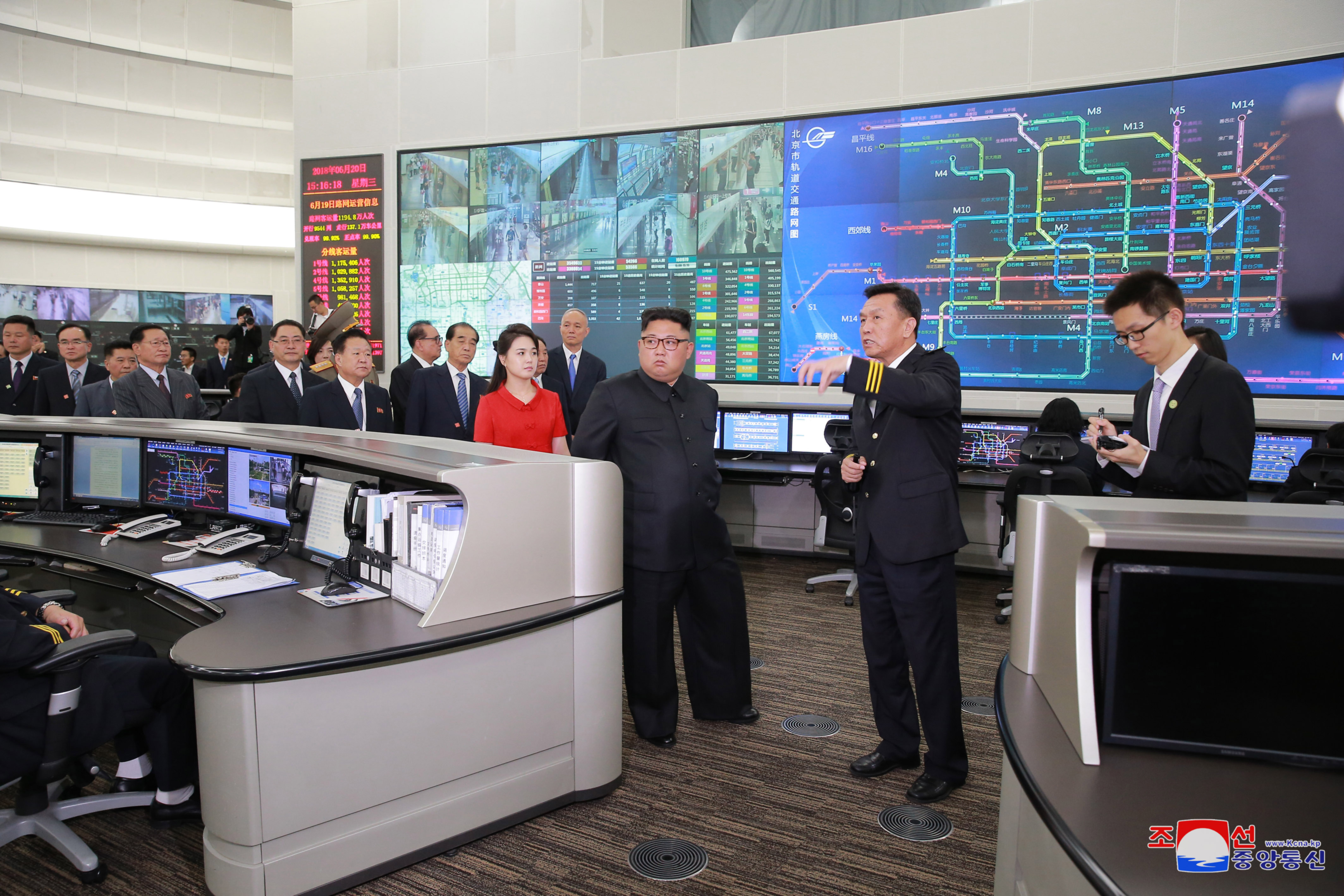
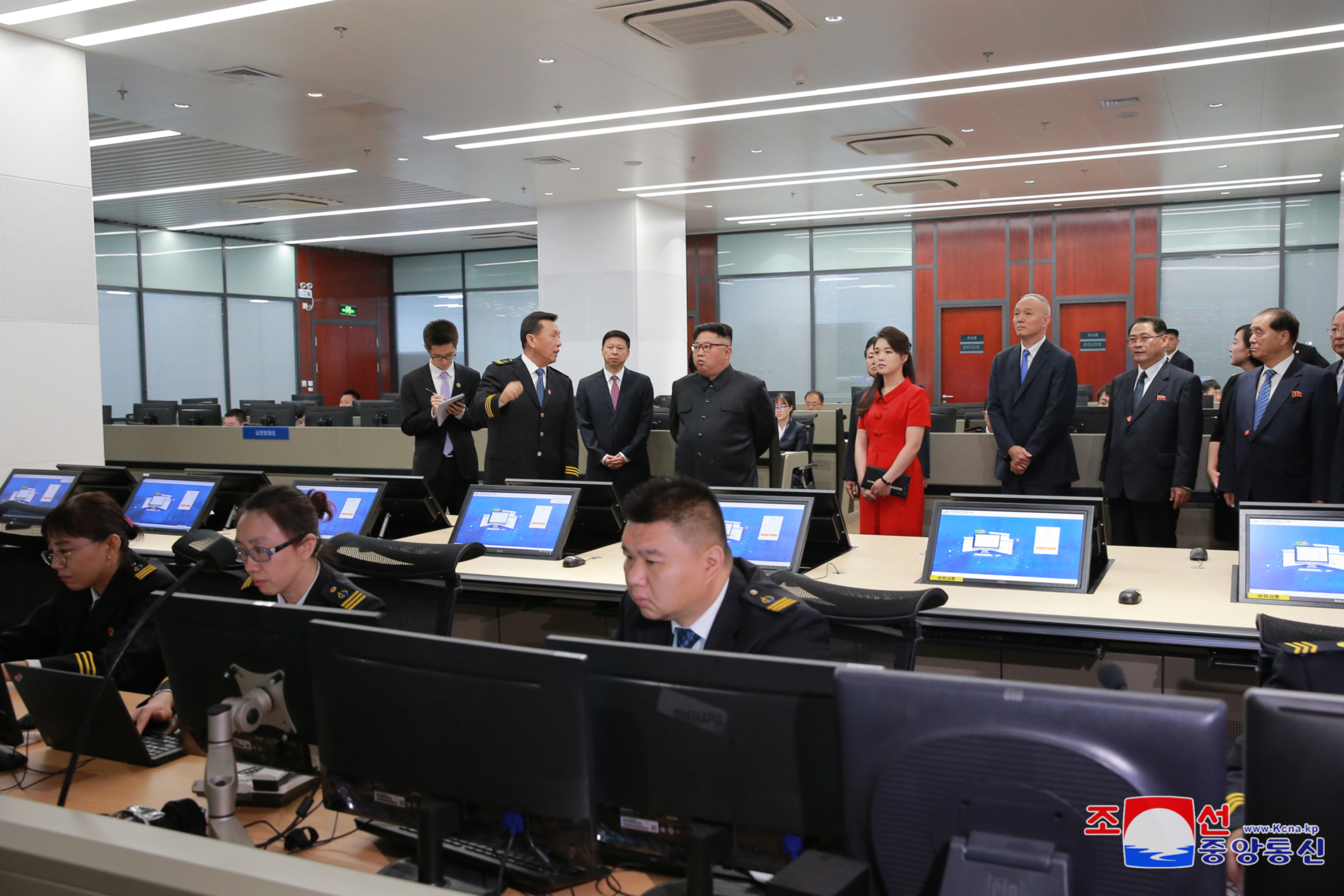
Jong Un and his entourage moved on to the Beijing Municipal Track Traffic Control Center. The center’s director explained to Kim Jong Un “in detail about the center that has made its development under the deep care of the Chinese party and government leaders.” As he listened to the director’s explanation, Kim Jong Un toured an exhibition about the history of the construction of the Beijing subway, a subway traffic control facility, ticketing kiosk systems and the dreaded ticket “checker” system and to learn about the subway’s operations and further line extensions.
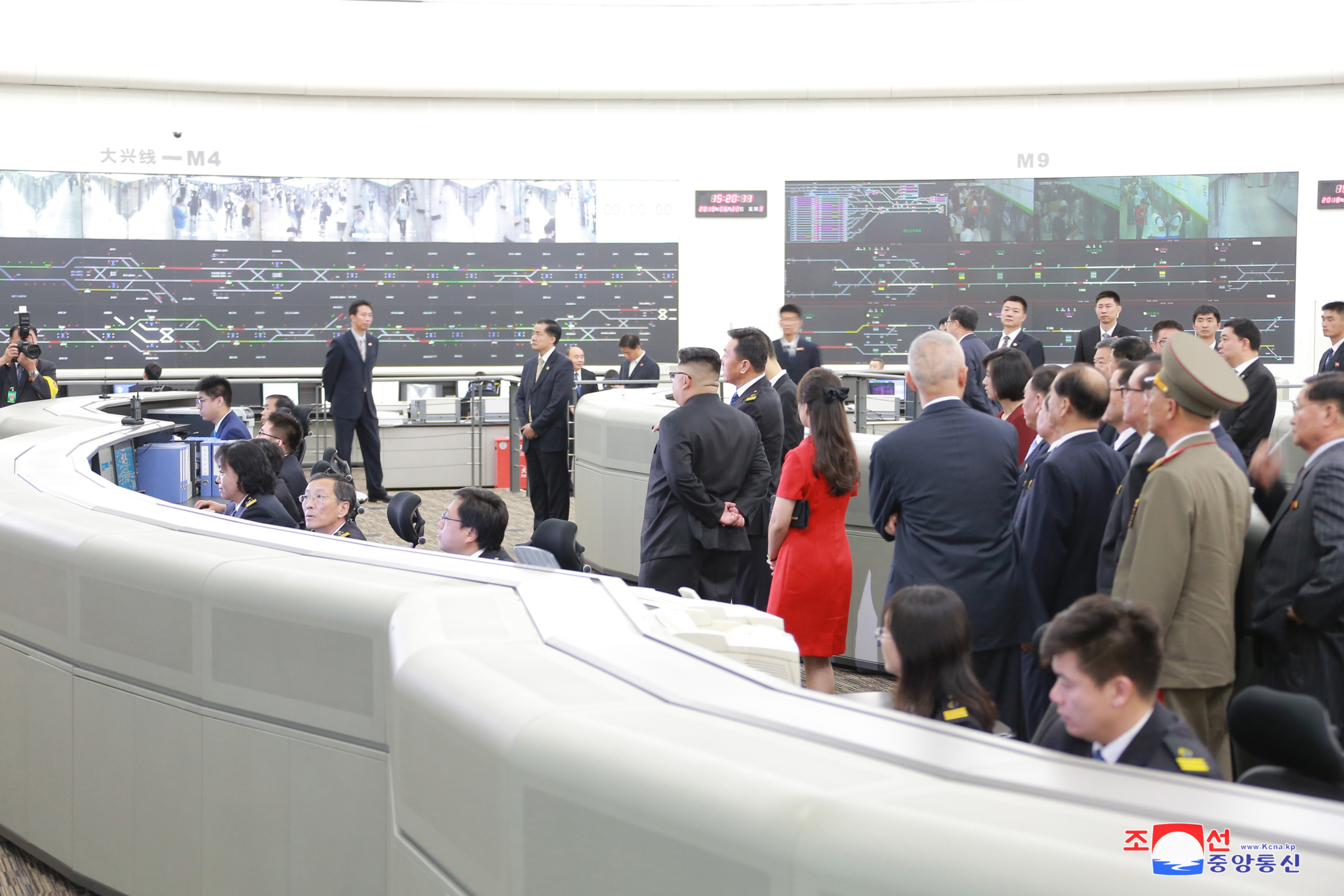

He said that he “admires the high-level automation and good combined control system of the center” and “hoped that the center would further develop into a world-level traffic control center and make greater progress.”
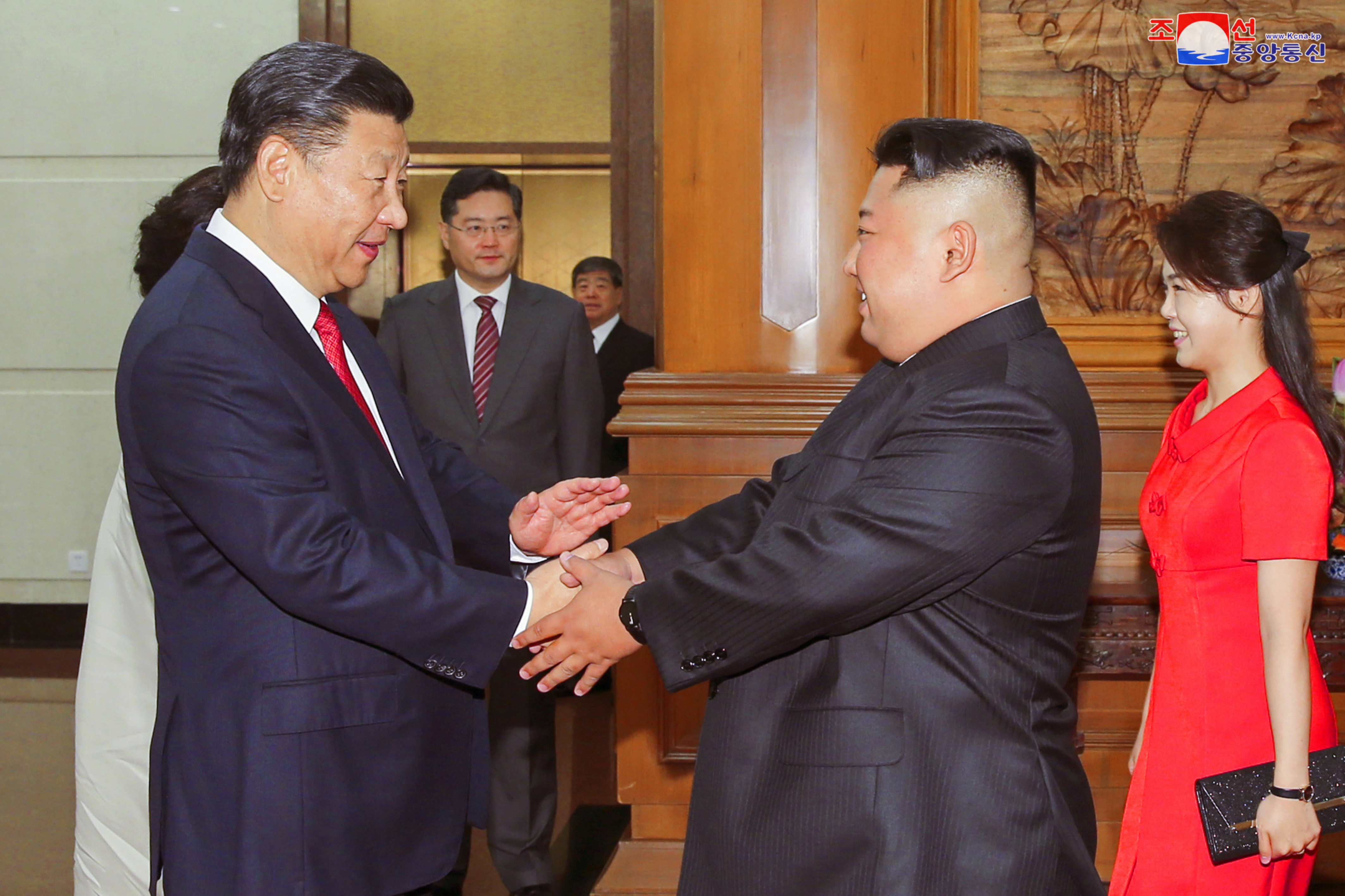
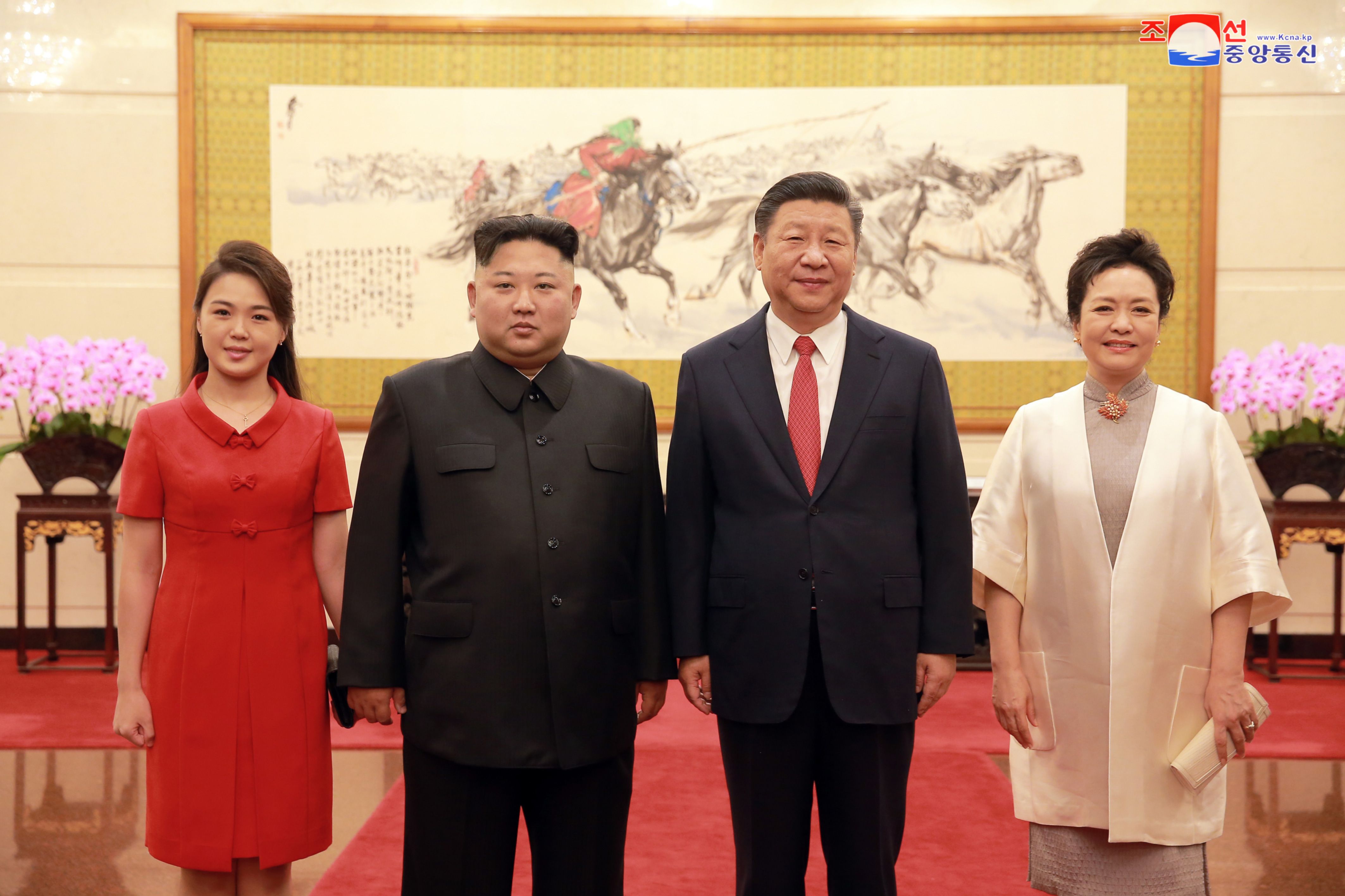
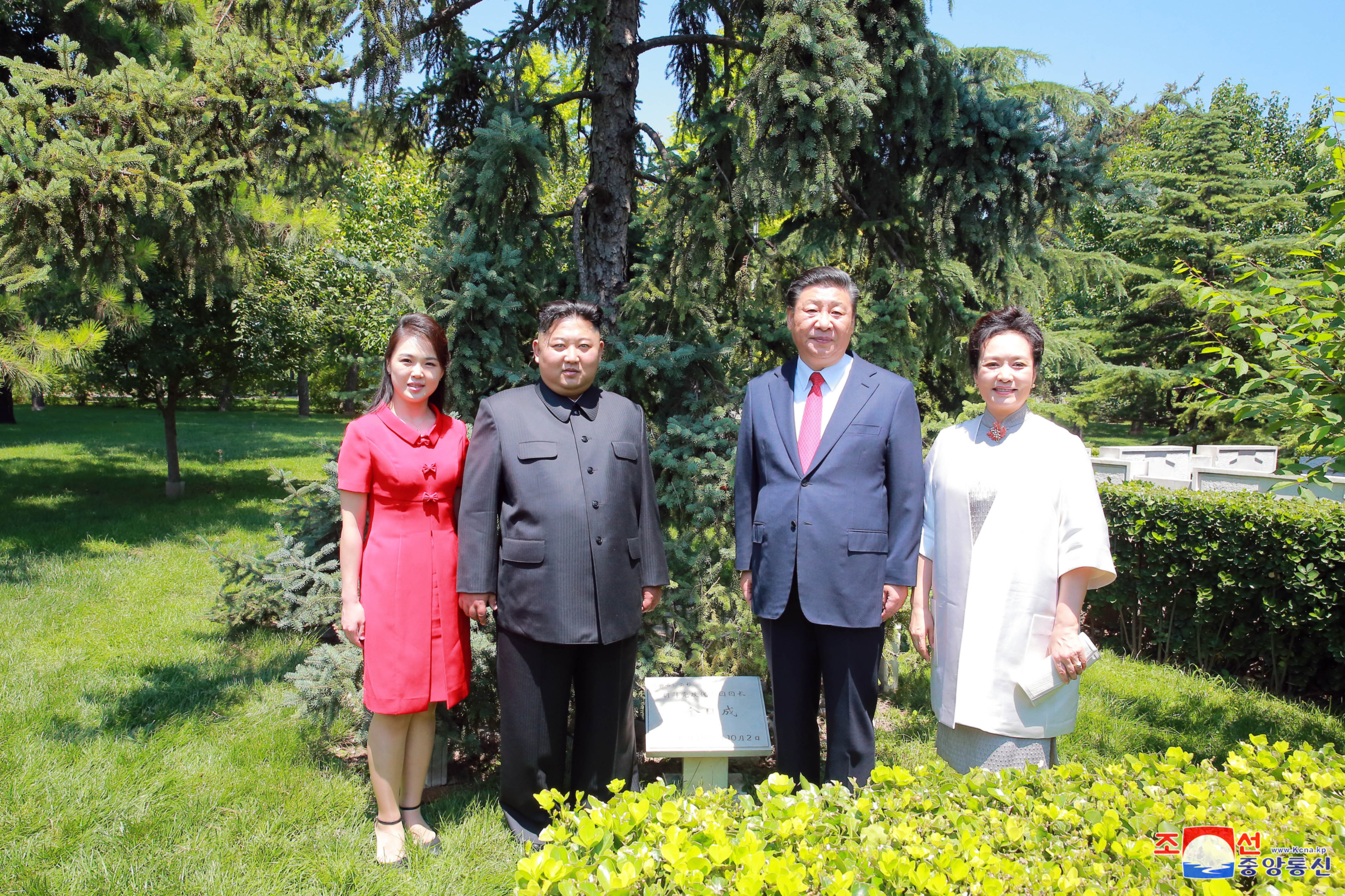
During the late morning of June 20, Kim Jong Un and Ri Sol Ju met and lunched with President Xi Jinping and his wife Peng Liyuan at Diaoyutai State Guesthouse. On the premises of Diaoyutai, they gathered around a spruce tree planted by late DPRK President and founder Kim Il Sung (Kim Il-so’ng) in 1959, which conveyed “the beautiful story of the DPRK-China friendship.” The area around the tree was “a reunion venue” for the two leaders and their wives and President Xi and Madame Peng “accorded special hospitality to them.”
Then they held a meeting where they exchanged “warm greetings with respected Xi Jinping and Peng Liyuan” and expressed their “heartfelt thanks for providing them again with a special place.” Prior to sitting down to lunch, President Xi and Kim Jong Un had a “tete-a-tete talk” in which they “exchanged serious views on the present situation and urgent international issues to fruther strengthen the strategic and tactical cooperation between the two parties and the two countries under a new situation.” After the meeting, Jong Un, Ri Sol Ju, President Xi and Madame Peng “had a luncheon in a happy family atmosphere.”
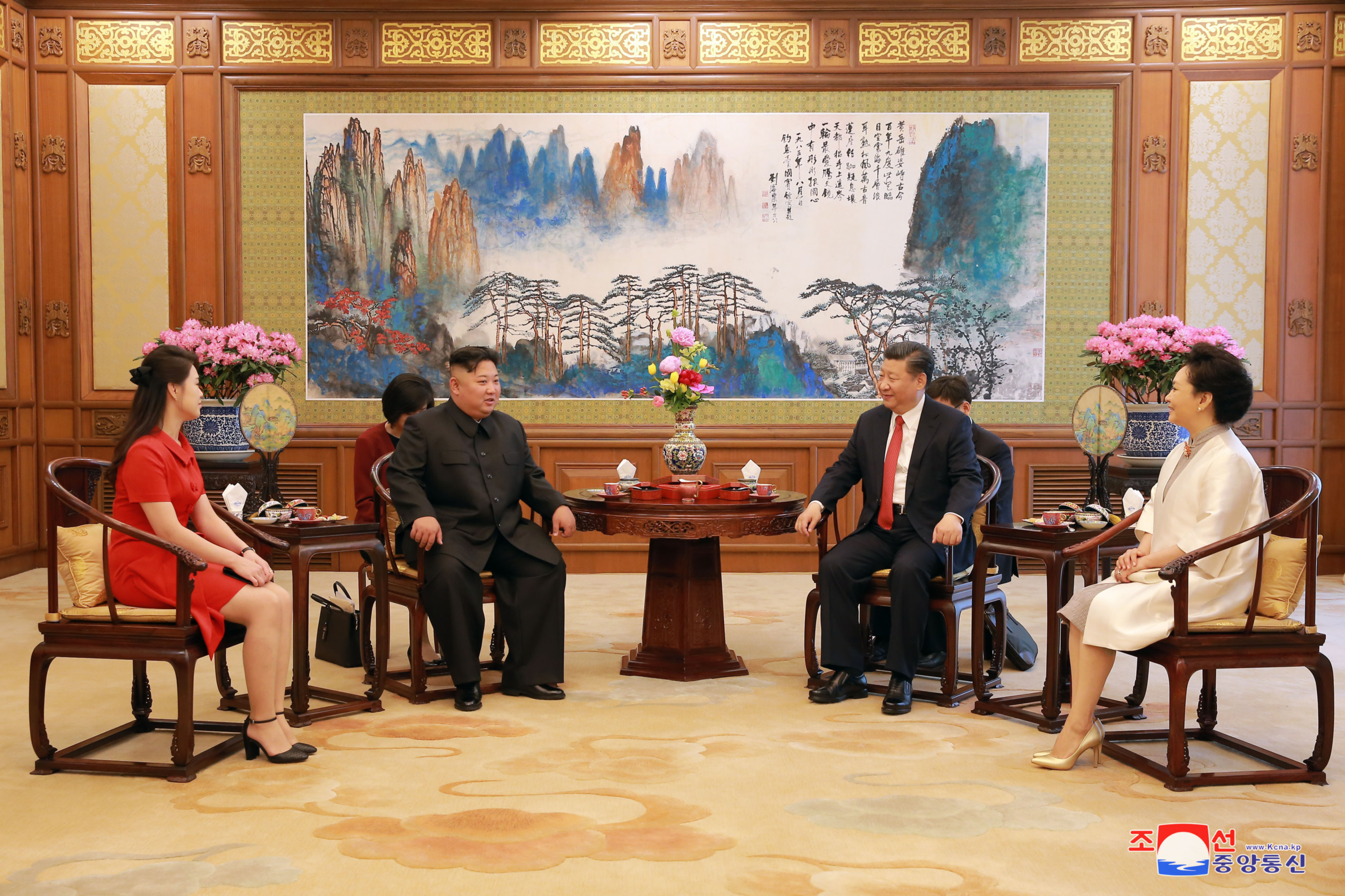
Jong Un and President Xi, along with their wives, “who got more familiar with each other on several significant meeting, exchanged their genuine feelings, having an amicable conversation.” After the meal, Kim Jong Un bid President Xi good-bye.” He said that “he paid a good and satisfactory visit to China under the tender care of Xi Jinping” and expressed his “thanks to the Chinese party and government for warmly greeting him and according hospitality to him with special favor every time.” Kim Jong Un and Ri Sol Ju assured Xi Jinping and Peng Liyuan there would be future interactions and then said good bye.
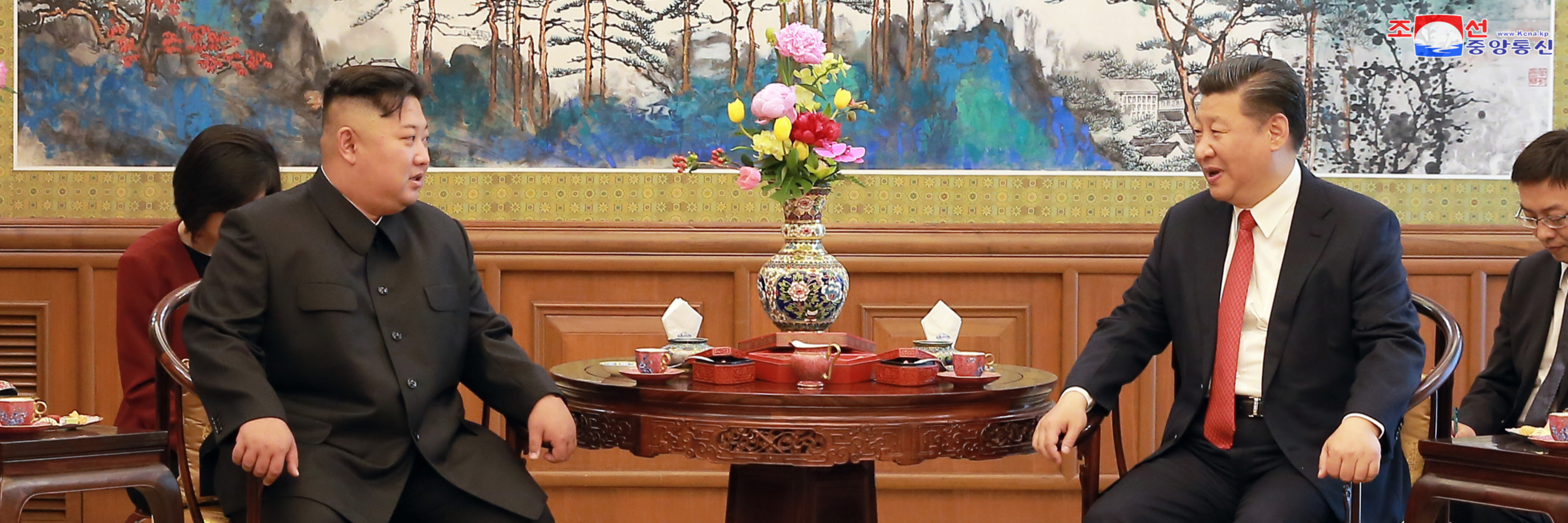
According to Xinhua, Kim Jong Un and Xi Jinping “had in-depth conversation over tea in a cordial and friendly atmosphere.” President Xi noted that Jong Un “paid three visits to China within 100 days” and the PRC and DPRK have “jointly created a new history of China-DPRK high-level exchanges.” Xi remarked that “we are pleased to see that the important consensus reached by China and the DPRK is gradually being implemented, the friendly cooperative relations between the two sides are radiating new vitality, the momentum for dialogue and the easing of the situation on the Korean Peninsula has been effectively strengthened and the WPK’s new strategic route has pushed the DPRK’s socialist cause into a new journey.”
President Xi said that he “believed that under the joint efforts of both sides, China-DPRK relations will certainly benefit the two countries and the two peoples. With the joint efforts of China, the DPRK and related parties, the Korean Peninsula and Northeast Asia will surely embrace the bright prospects of peace, stability, development and prosperity.” President Xi said that “socialism with Chinese characteristics has entered a new era. The CPC and people of all ethnic groups in China are closely united around the CPC Central Committee to strive for the achievement of the Two Centenary Goals and the Chinese Dream of the great rejuvenation of the Chinese nation. China is willing to share its experience with the DPRK, and strengthen unity and cooperation to jointly create a better future for the socialist cause of the two countries.”
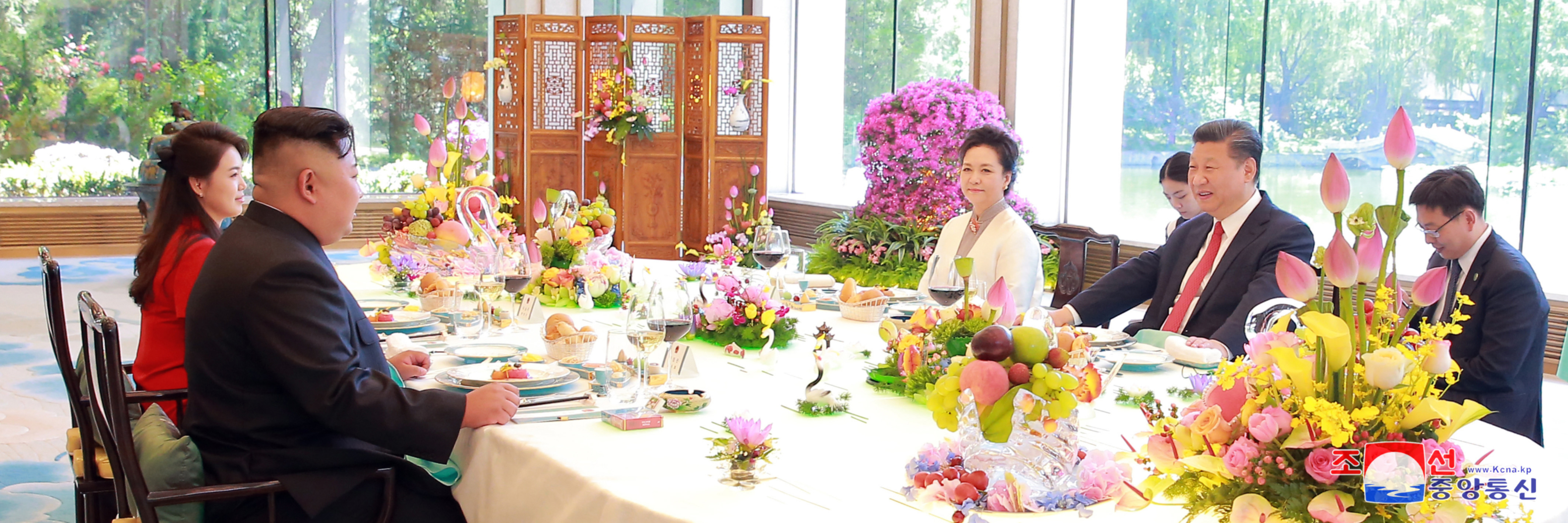
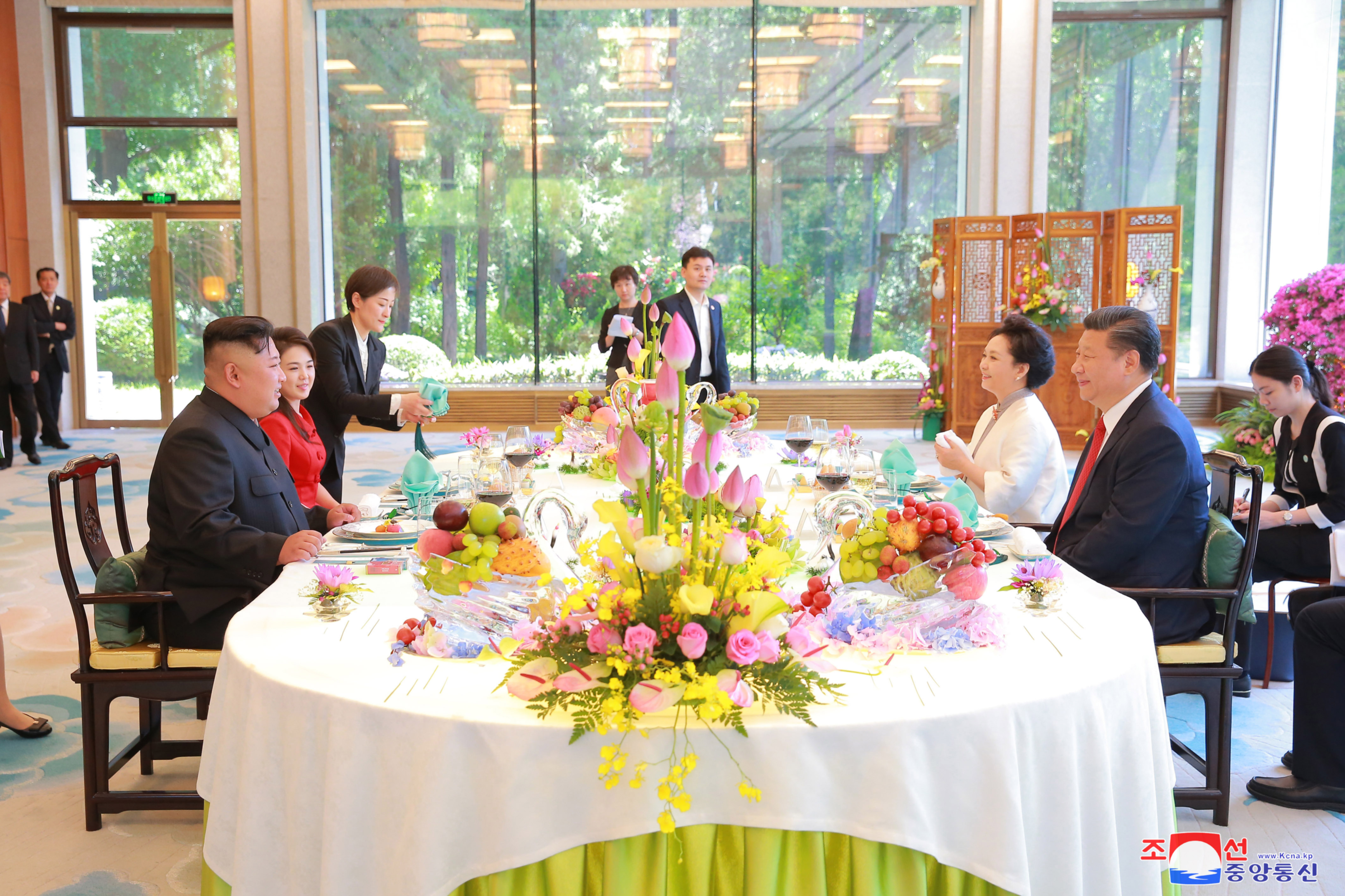
Kim Jong Un told Xi Jinping that “the two countries are as close and friendly as family, and help each other” and that Xi “has offered care and support for the DPRK people. The current visit to China has served as an opportunity to deepen the friendship between Comrade General-Secretary and I, and advance DPRK-China ties.” Jong Un “vowed to work with Chinese comrades to upgrade bilateral ties to a new high and play their roles in safeguarding world and regional peace and stability.” He also said that he “believed that under the strong leadership of the CPC Central Committee with Xi at the core, and the guidance of Xi Jinping Thought on Socialism with Chinese Characteristics for a New Era, the Chinese Dream of the great rejuvenation of the Chinese nation will definitely be realized.”
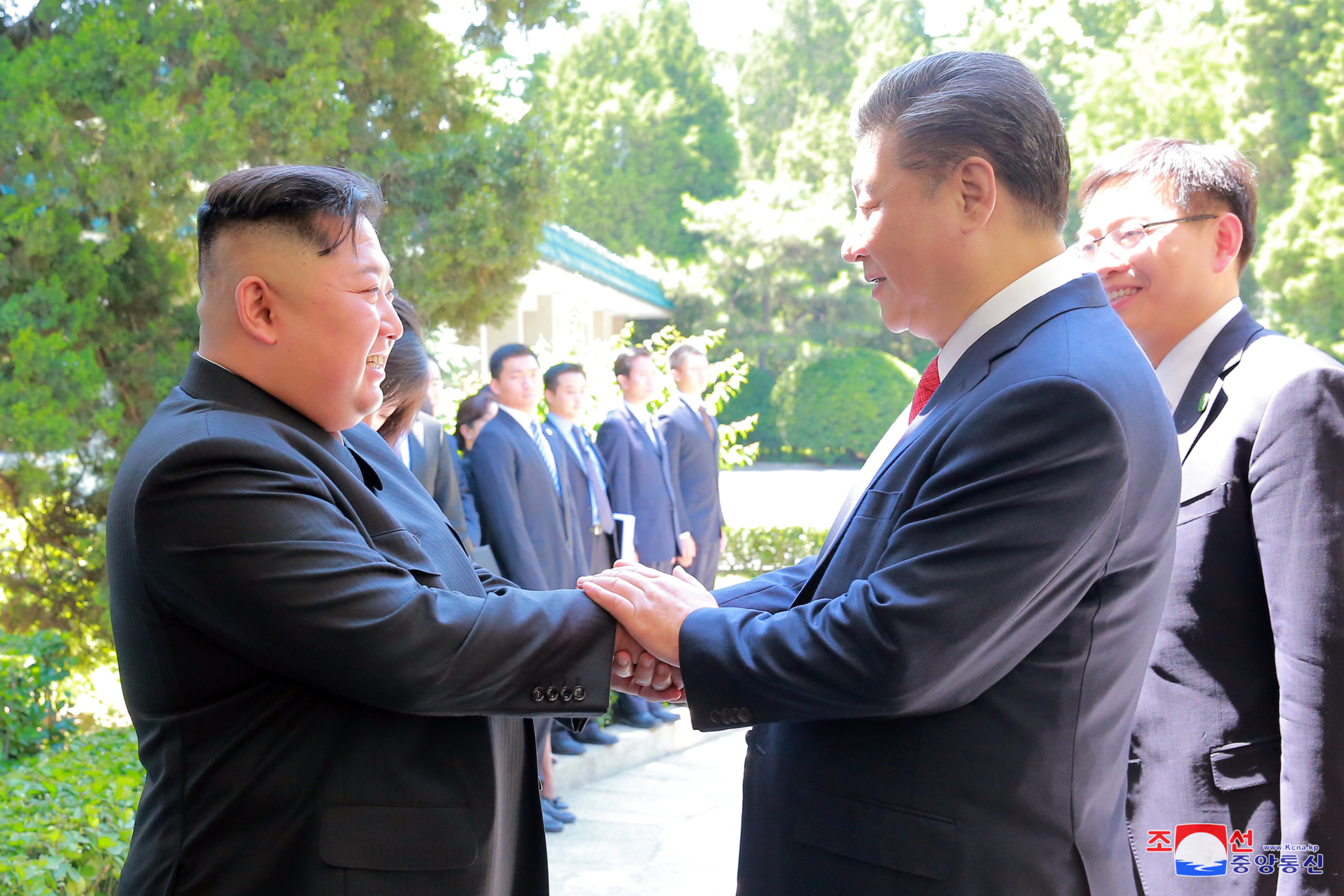
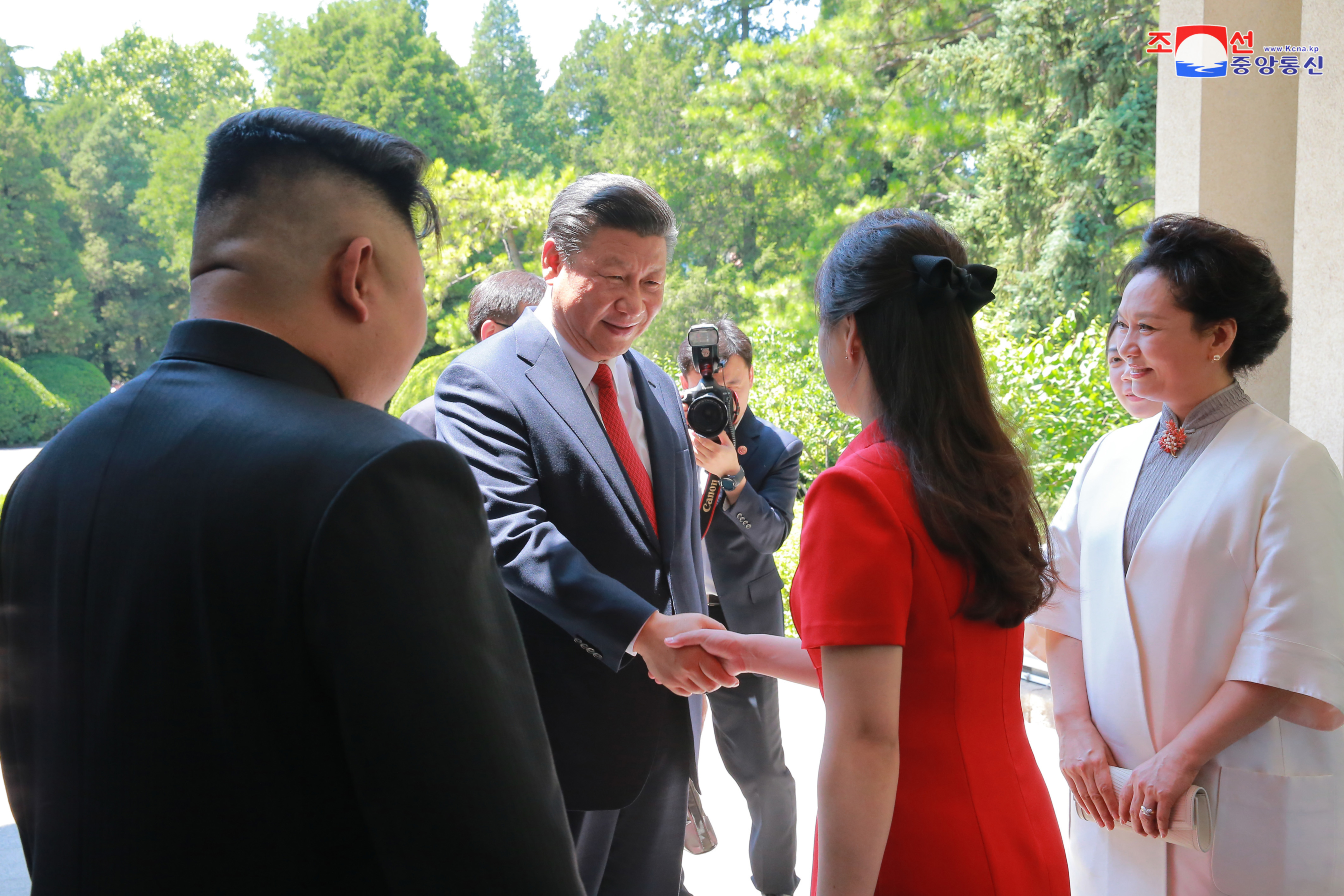

During the afternoon of June 20, Kim Jong Un visited the DPRK Embassy in the PRC compound. Ji Jae Ryong and senior embassy personnel greeted Kim Jong Un. He talked with embassy staff and was briefed about their work and living conditions.
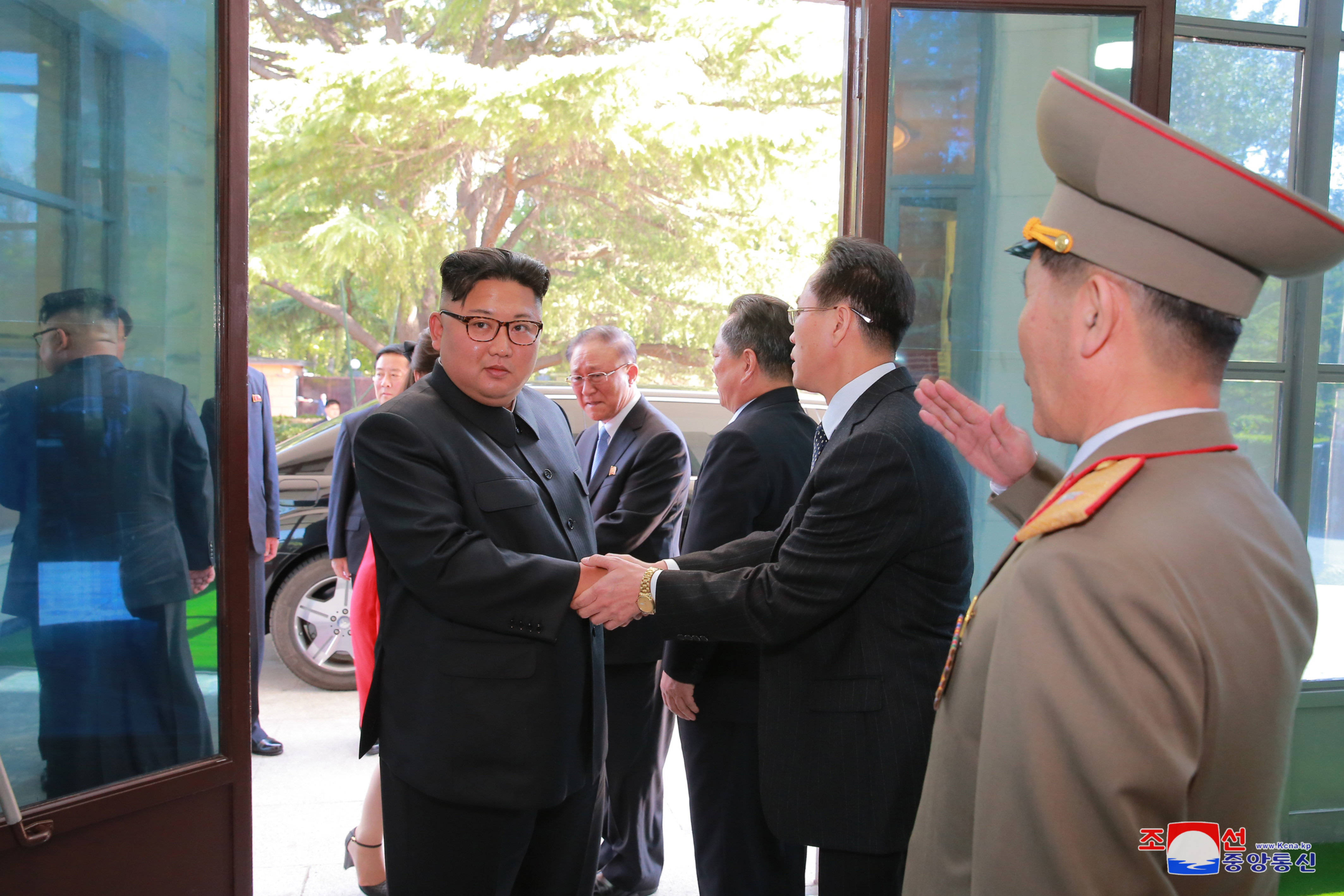
Jong Un then attended commemorative photo sessions with embassy staff and their families, as well as DPRK students currently studying in China. He gave “a pep talk” to the embassy staff, their families and the students and wished “them good health and greater successes in their work and their studies.”
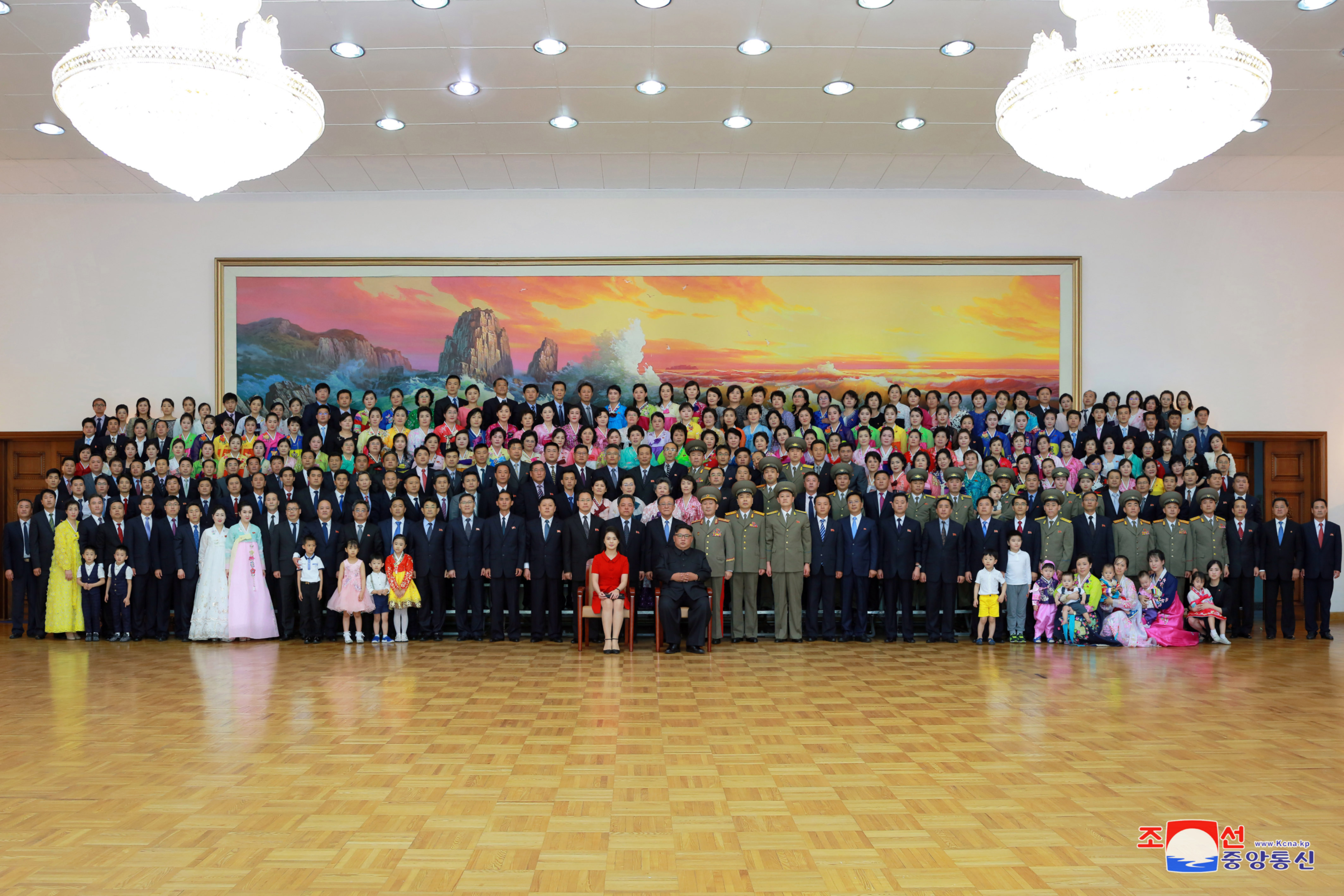
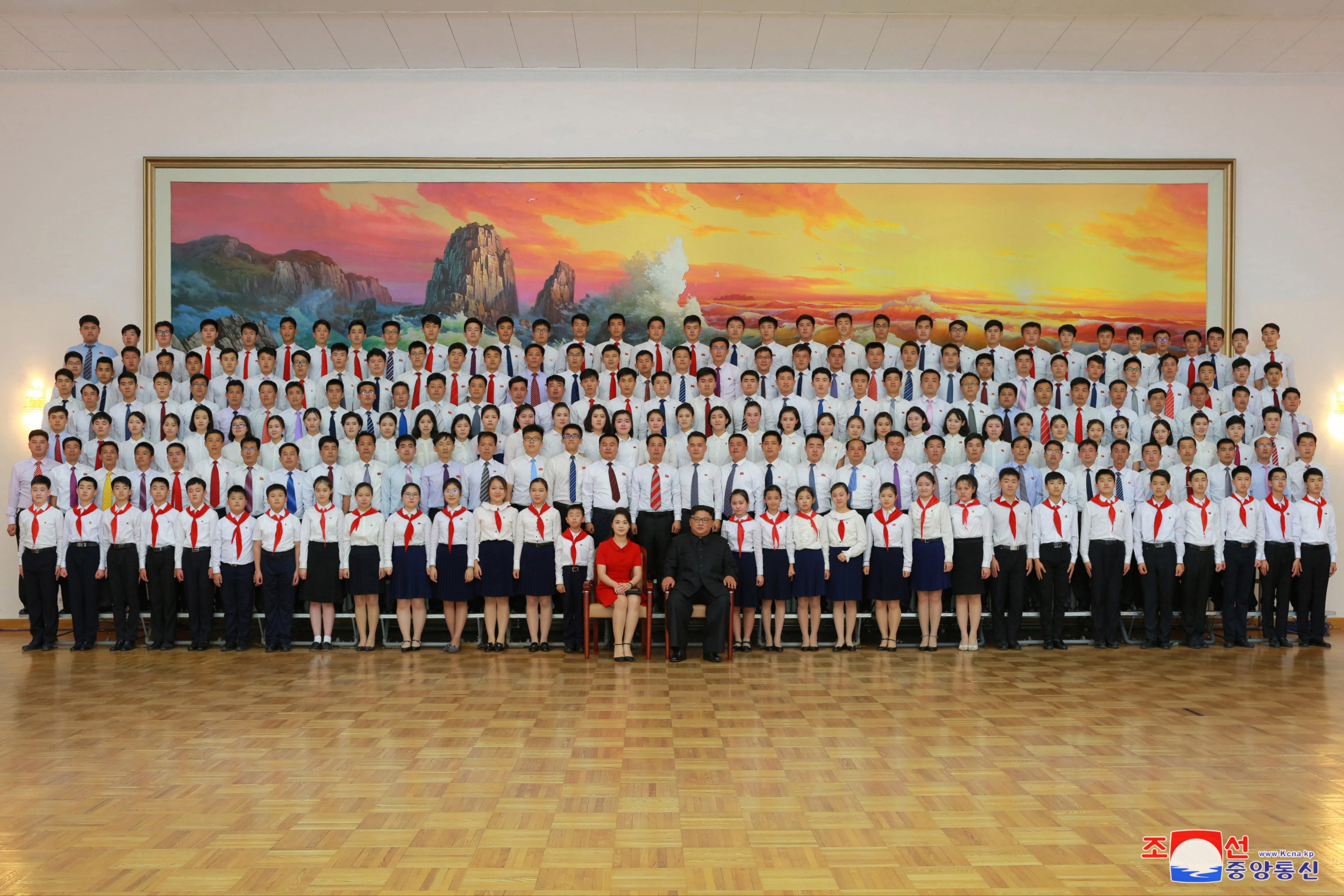

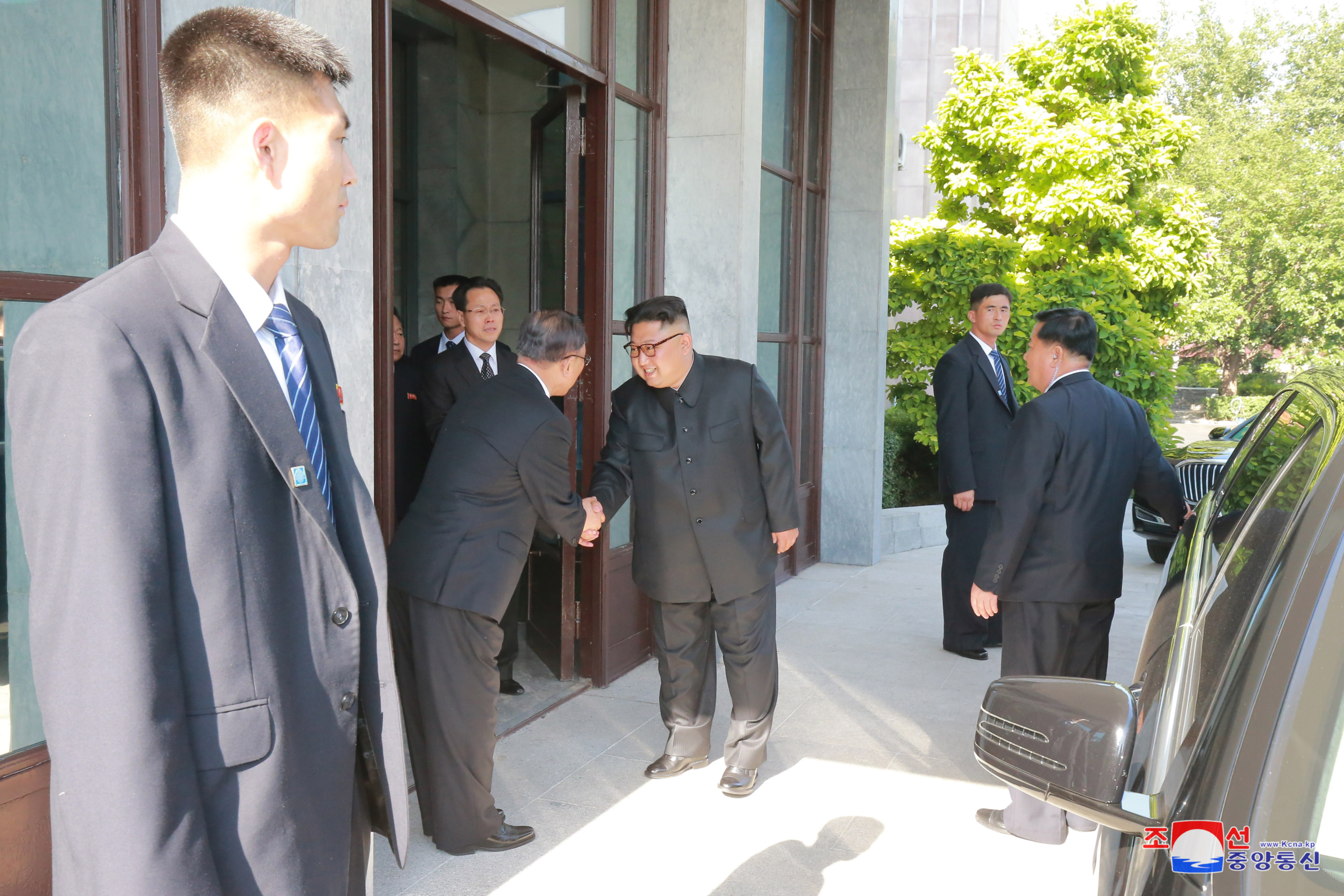
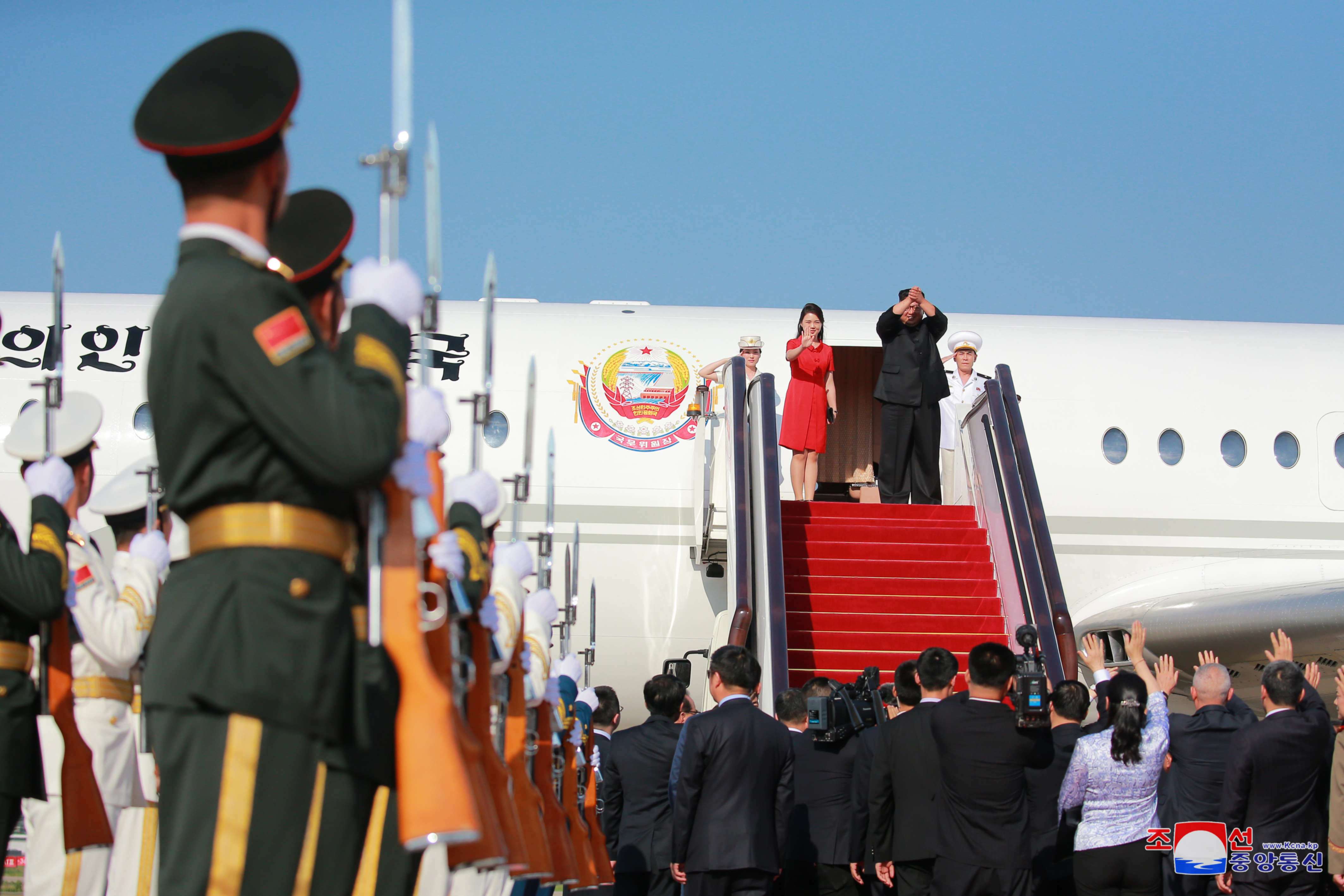
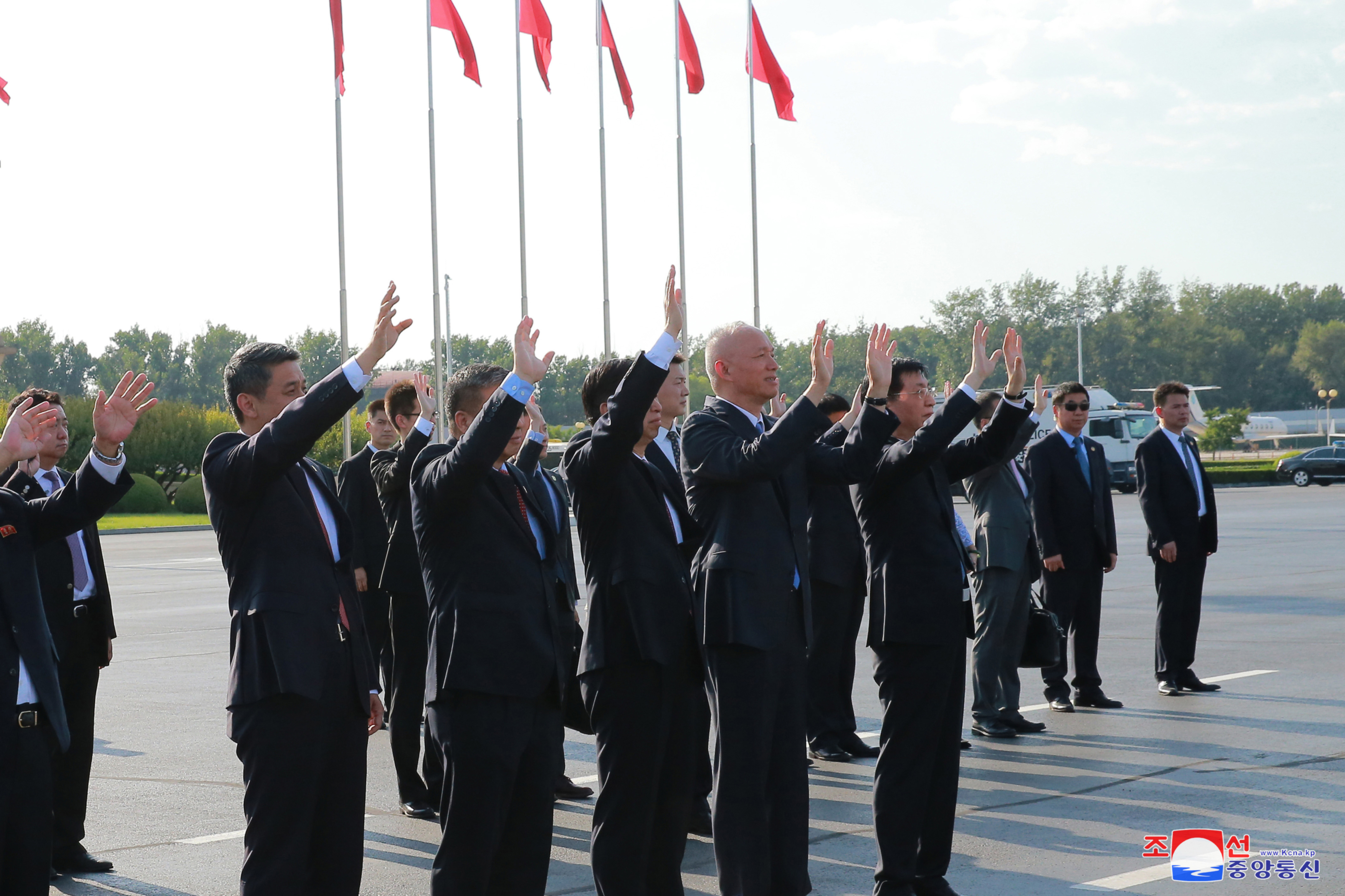
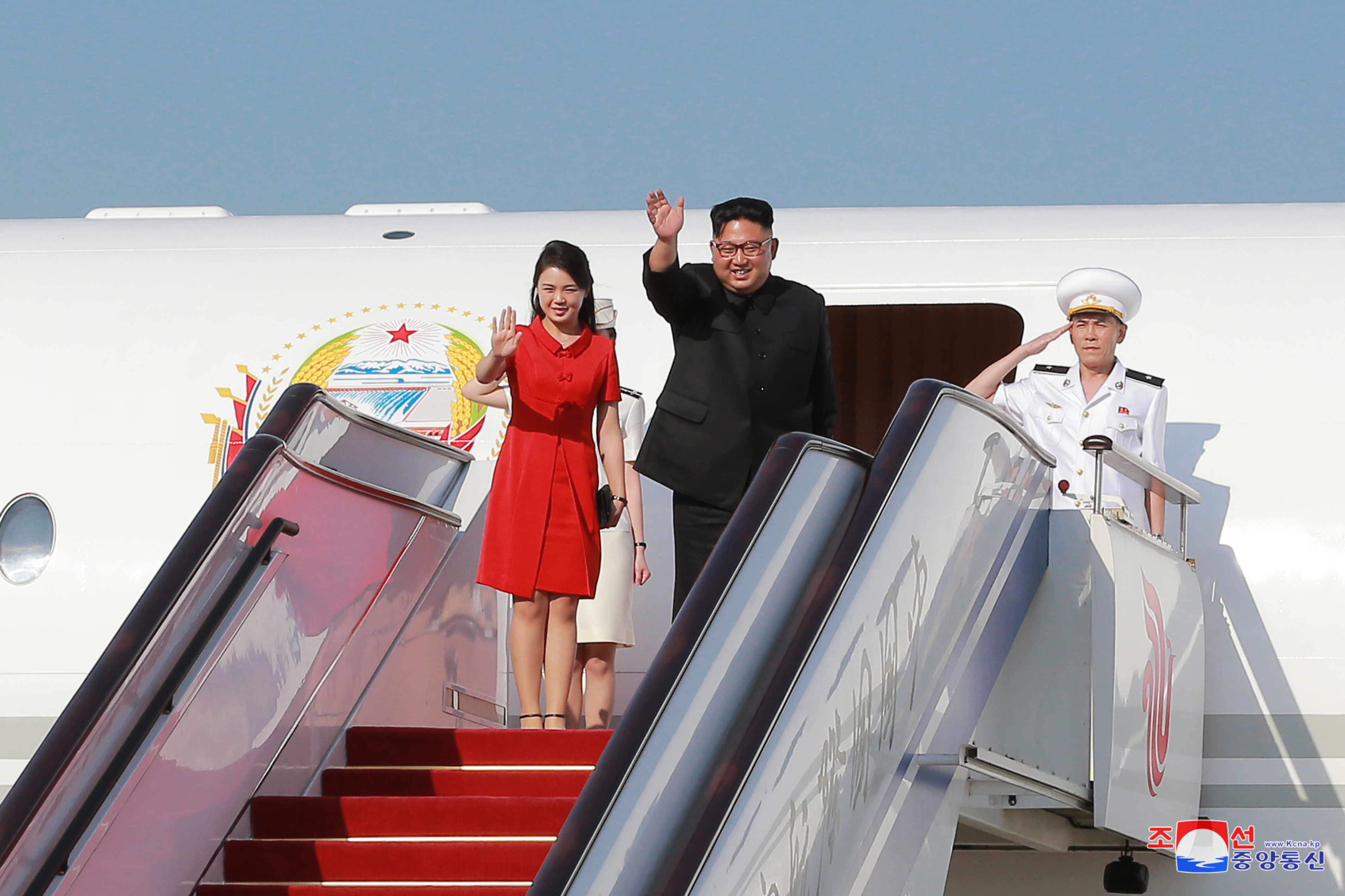
Kim Jong Un returned to the DPRK on the evening of June 20. He exchanged “parting words with those officials of China, expressing his satisfaction over the result of the the visit as well as his heartfelt thanks for their sincere service and efforts made to kindly accompany him during the visit as a whole.”

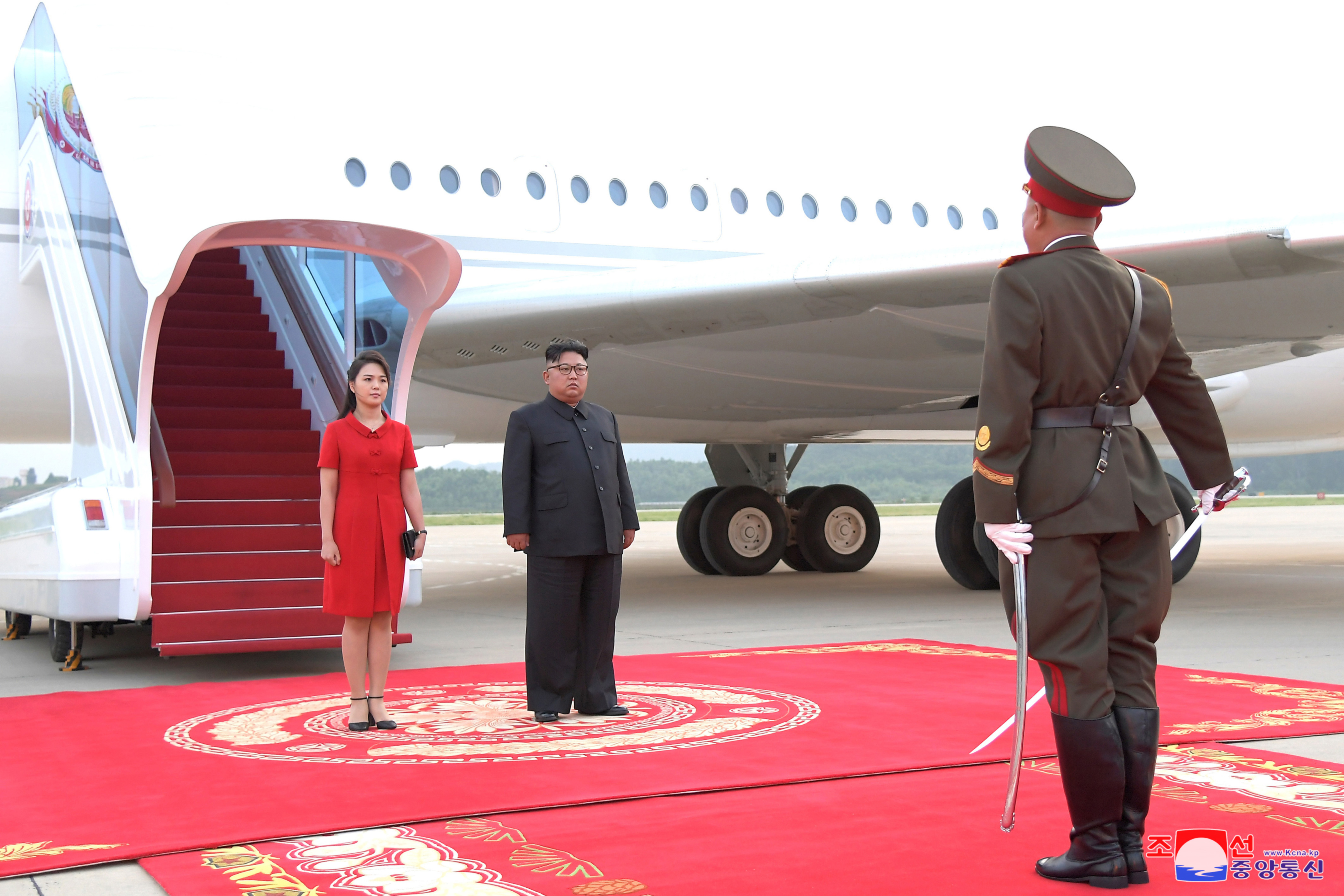
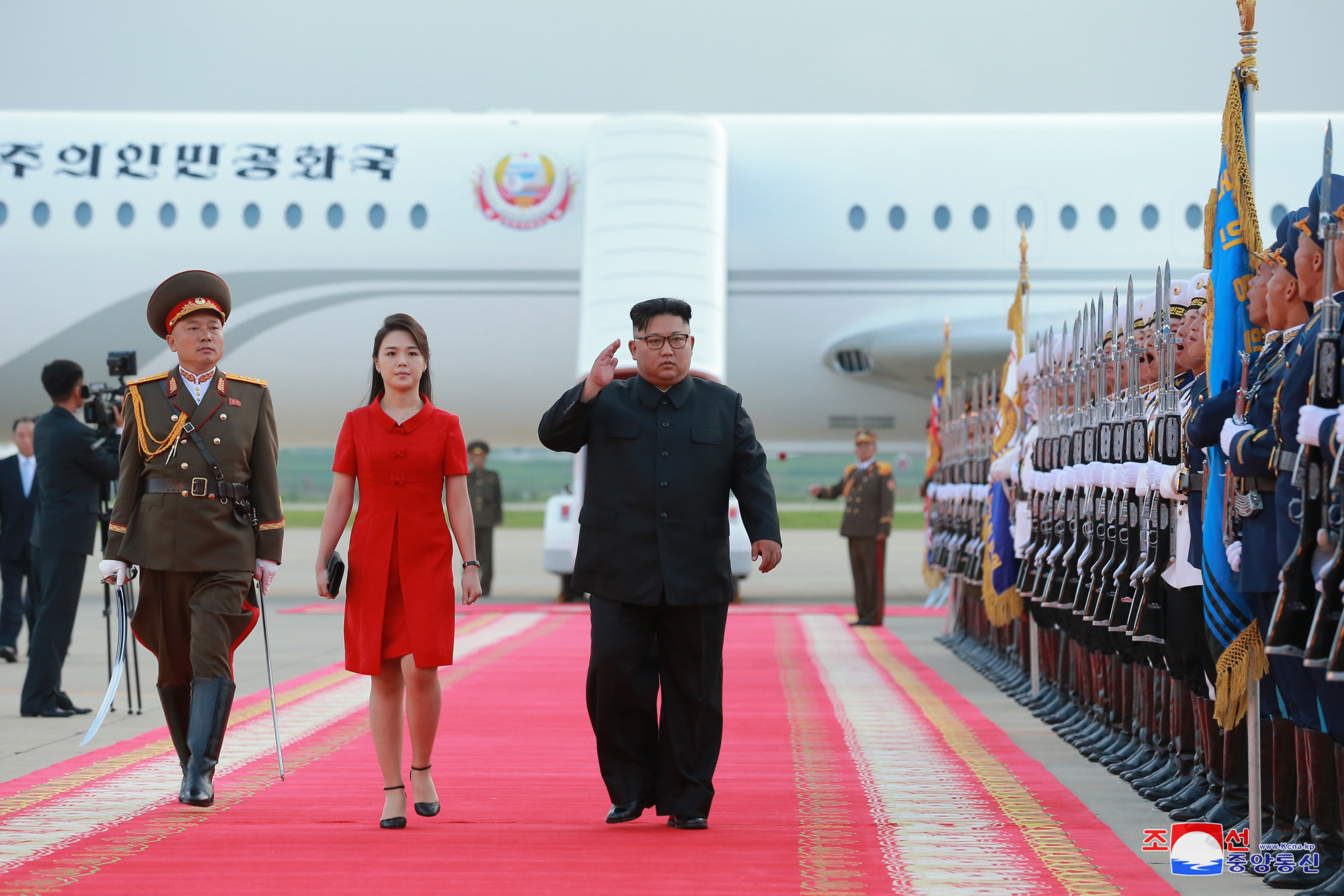
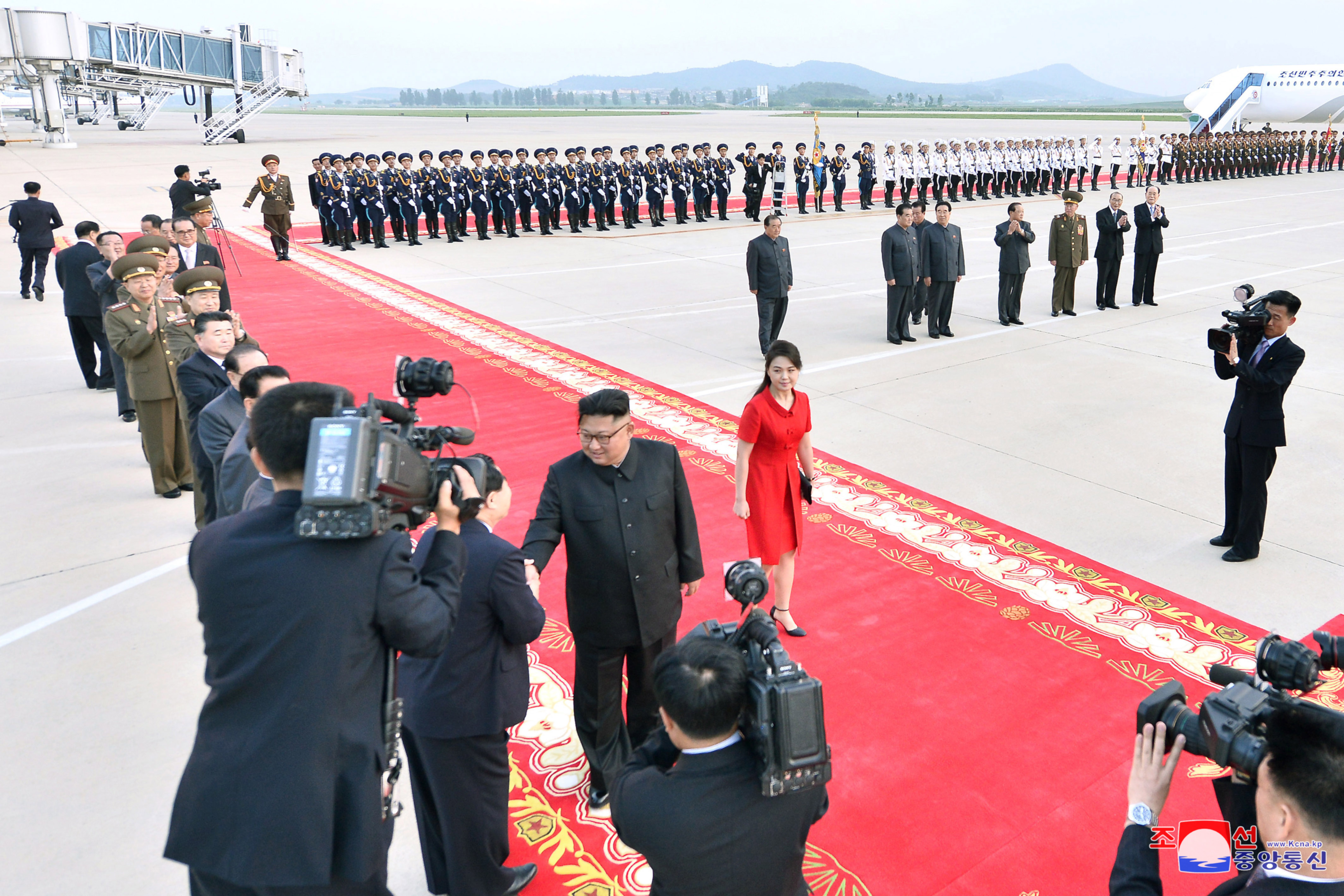
Jong Un and Ri Sol Ju departed from Beijing on his private place “amid the warm send-off of close Chinese comrades.” They landed at 1930 Pyongyang time and a return ceremony was held. Attending were members and alternate members of the WPK Political Bureau, who “presented wishes of greeting to Kim Jong Un who came back home in safety after recording another brilliant chapter in the annals of DPRK-China friendship.” They “warmly congratulated him upon his successful China visit.” Kim Jong Un met with the senior DPRK officials and “extended warm greetings to all the beloved people.”
